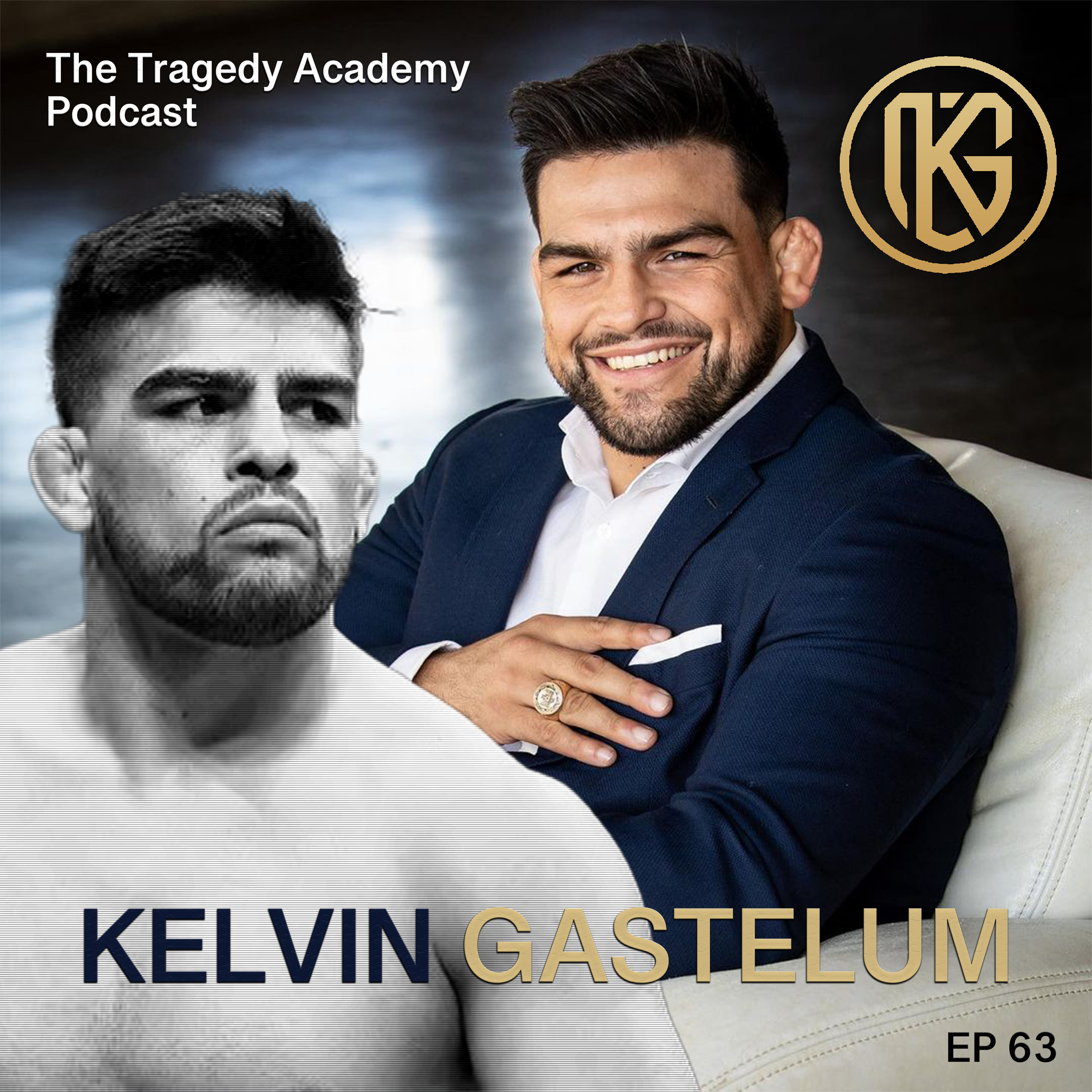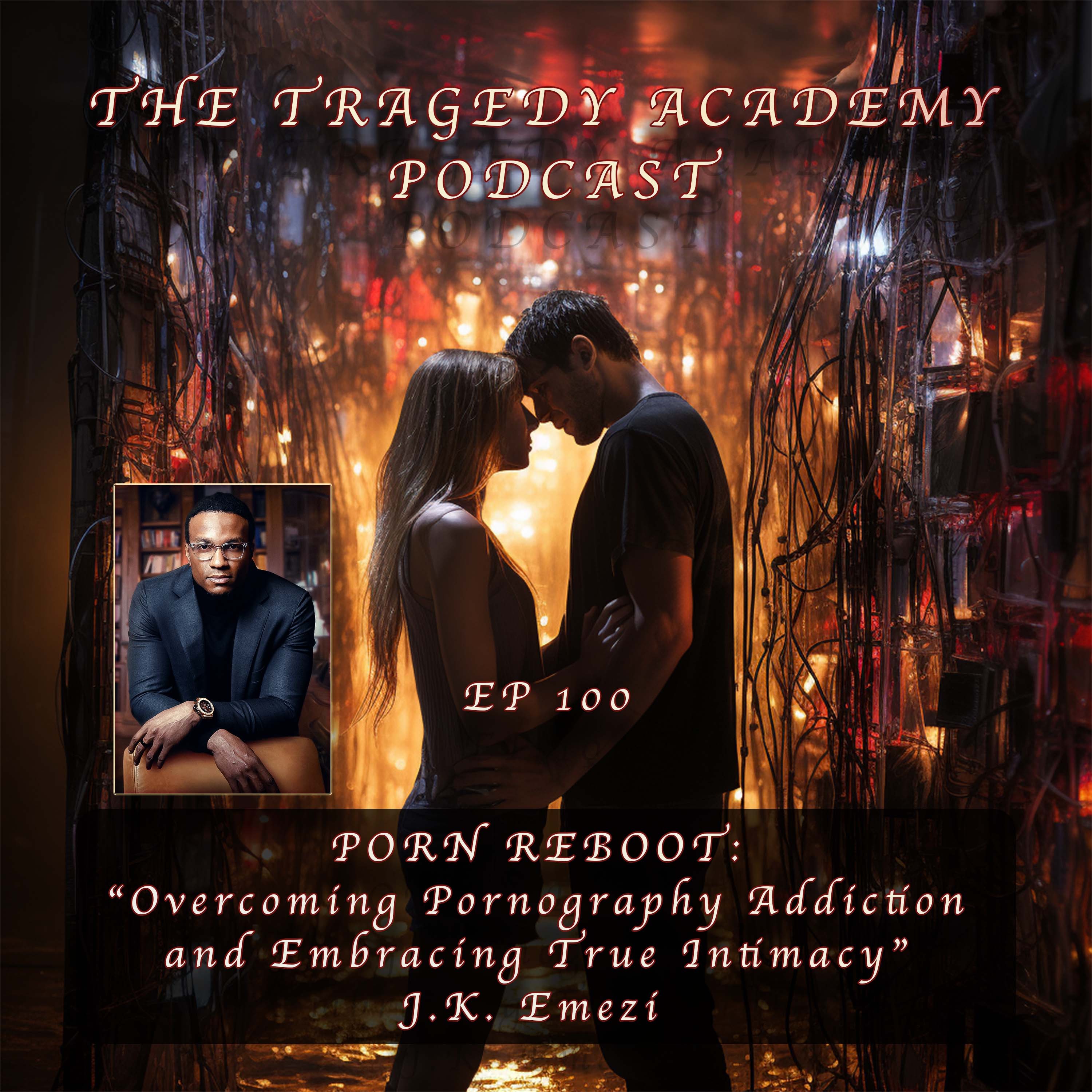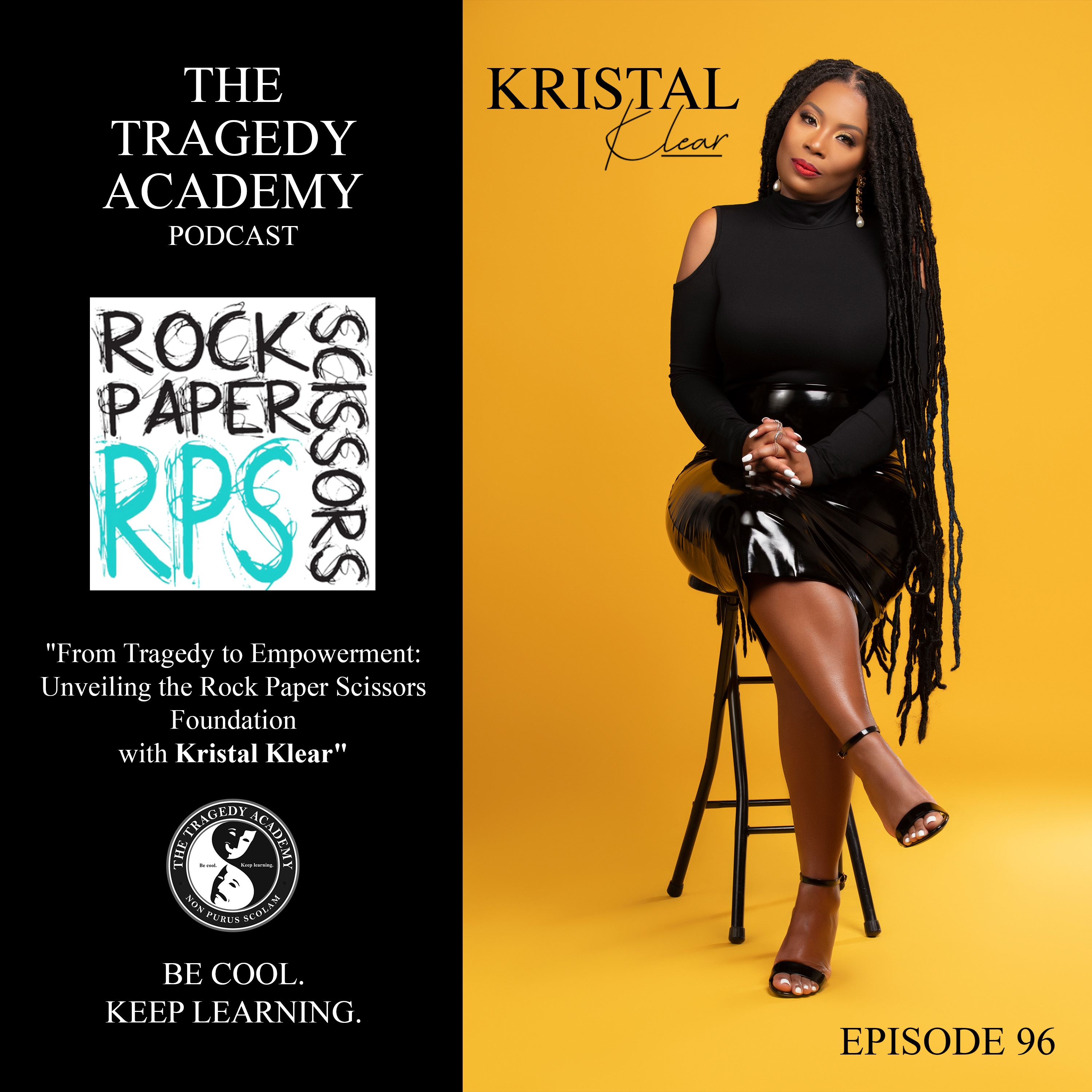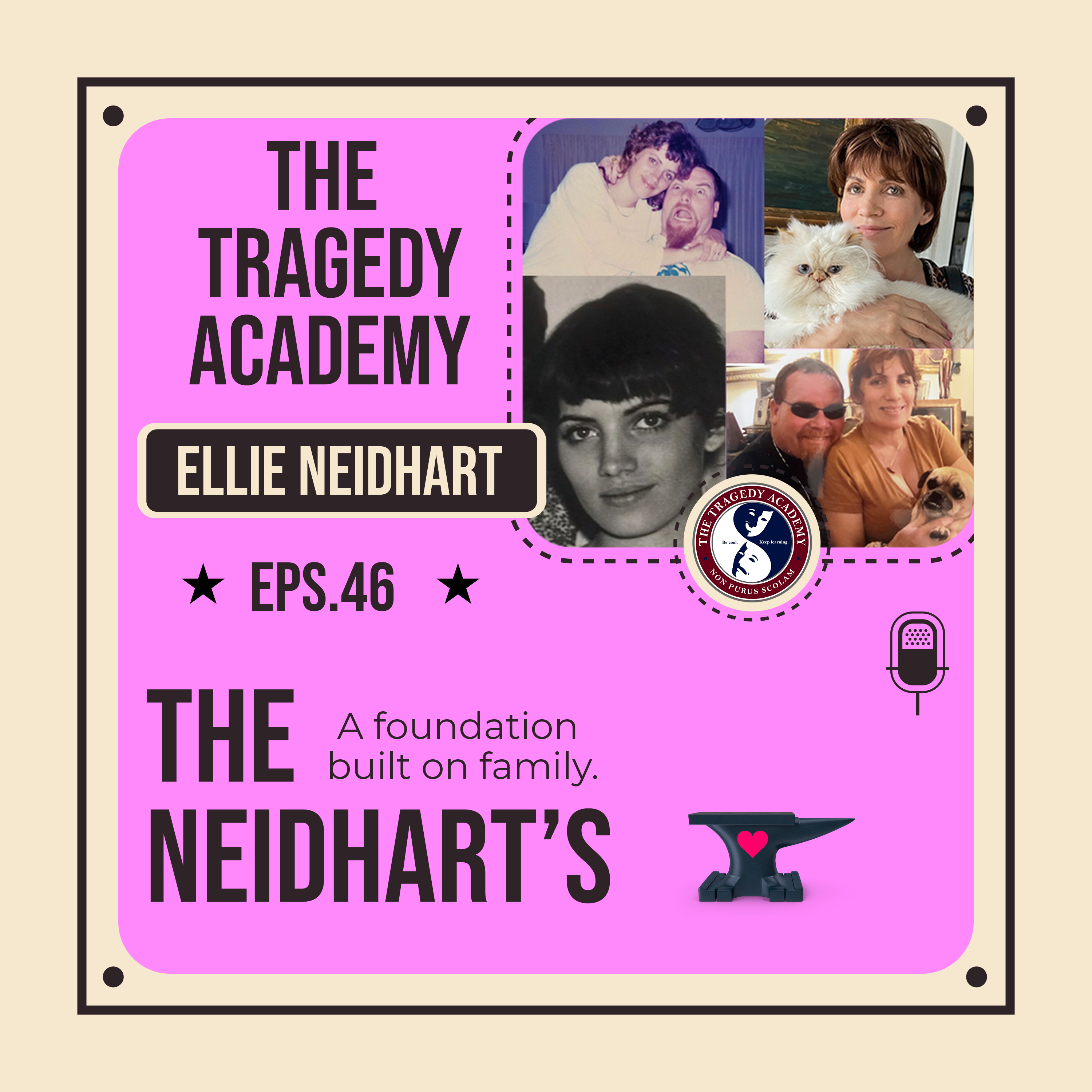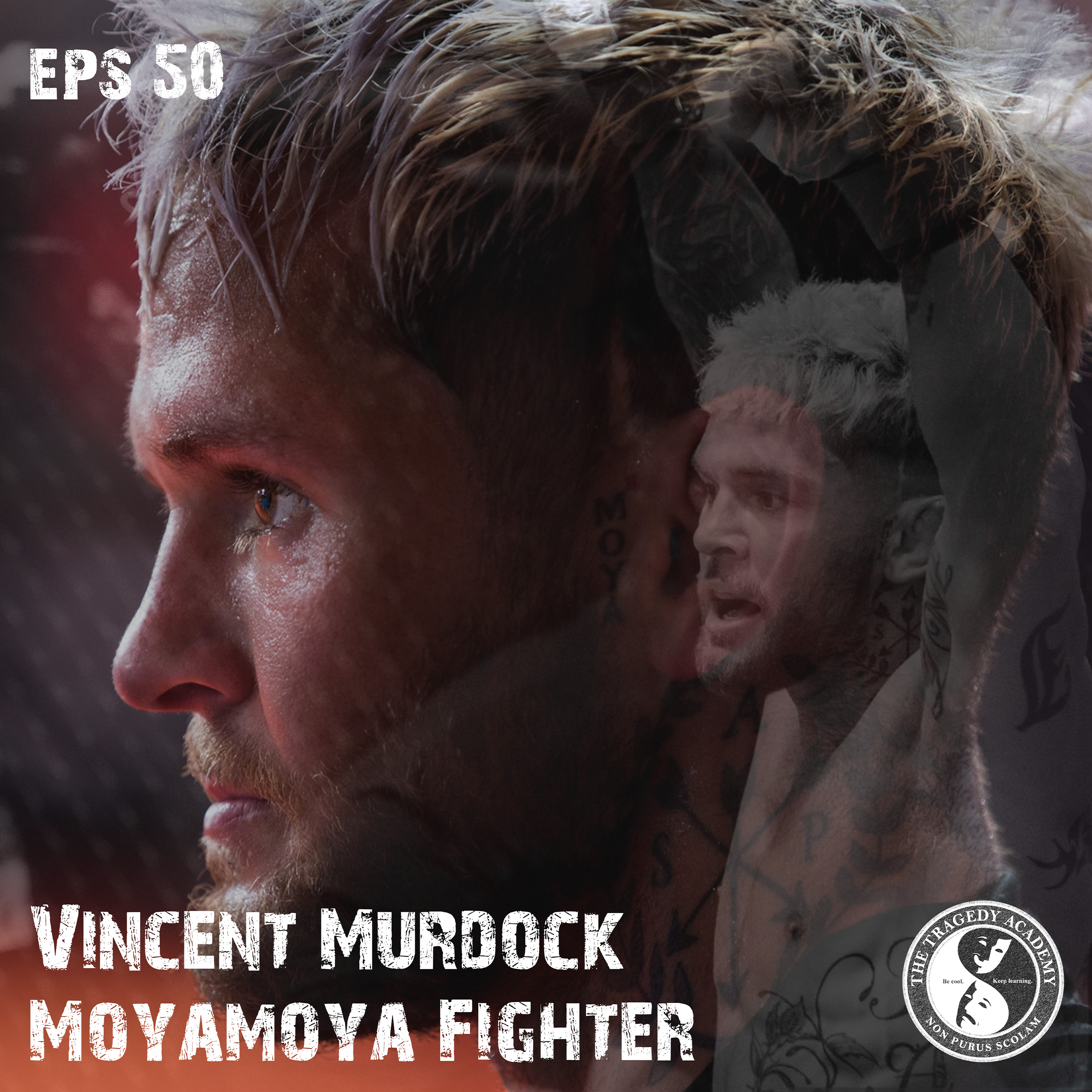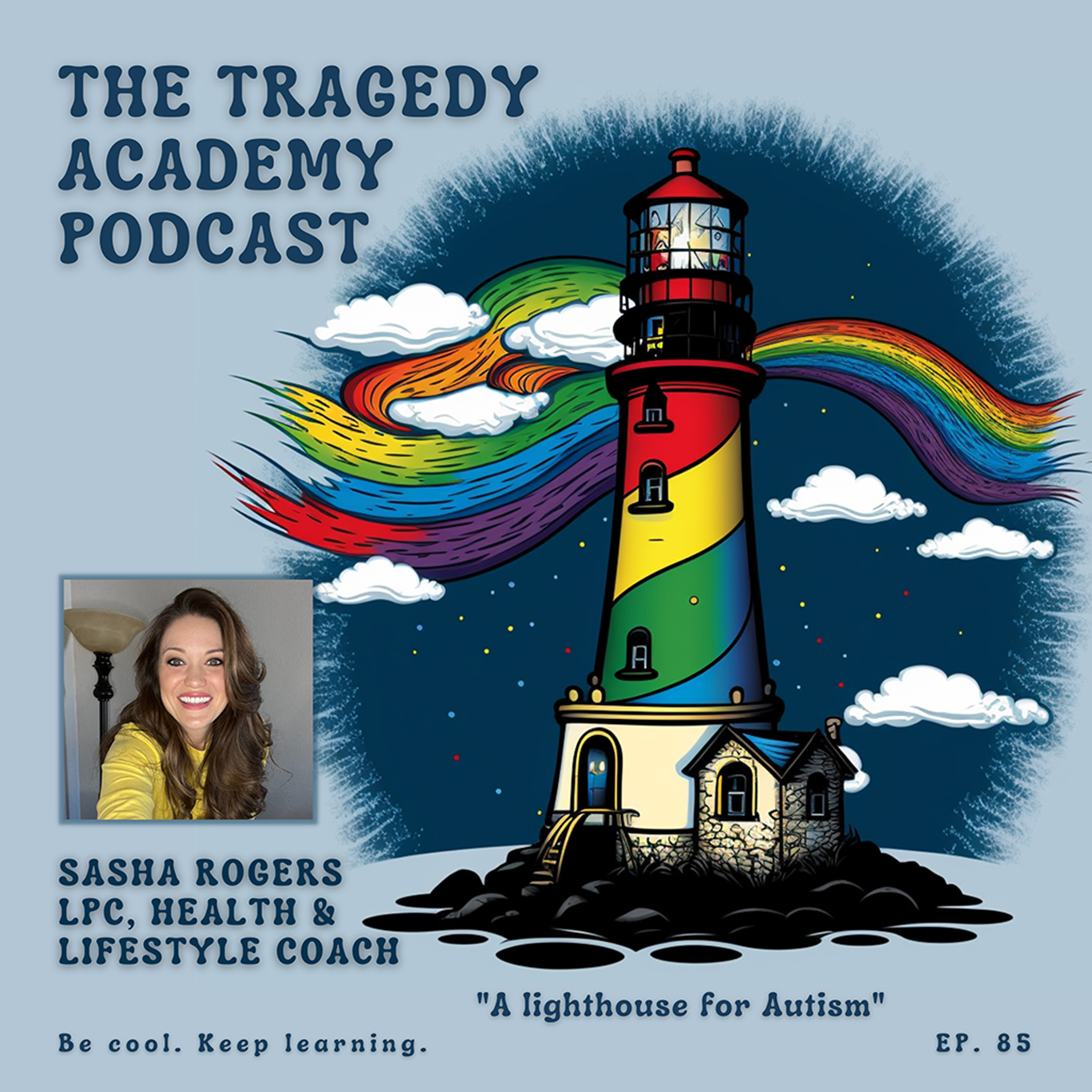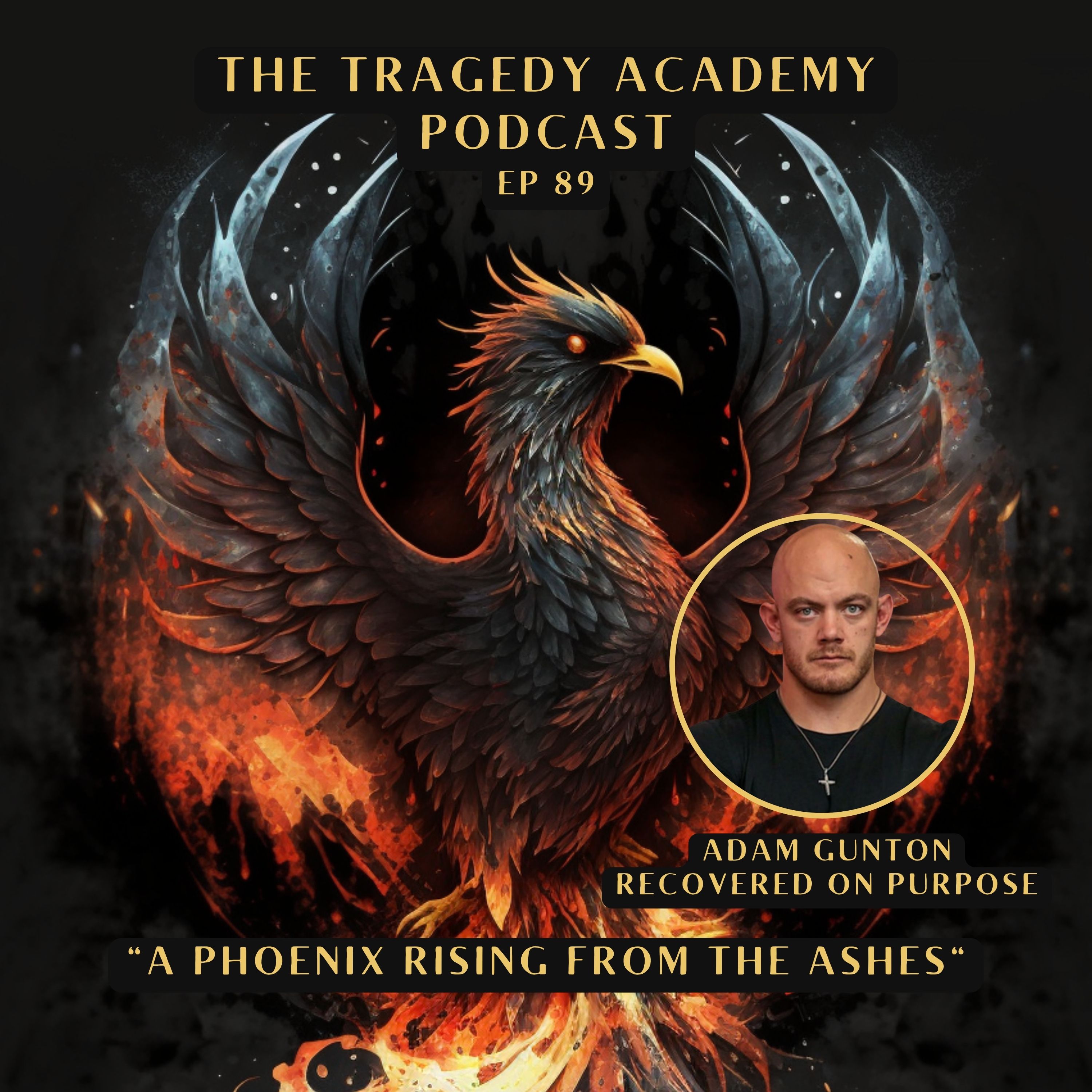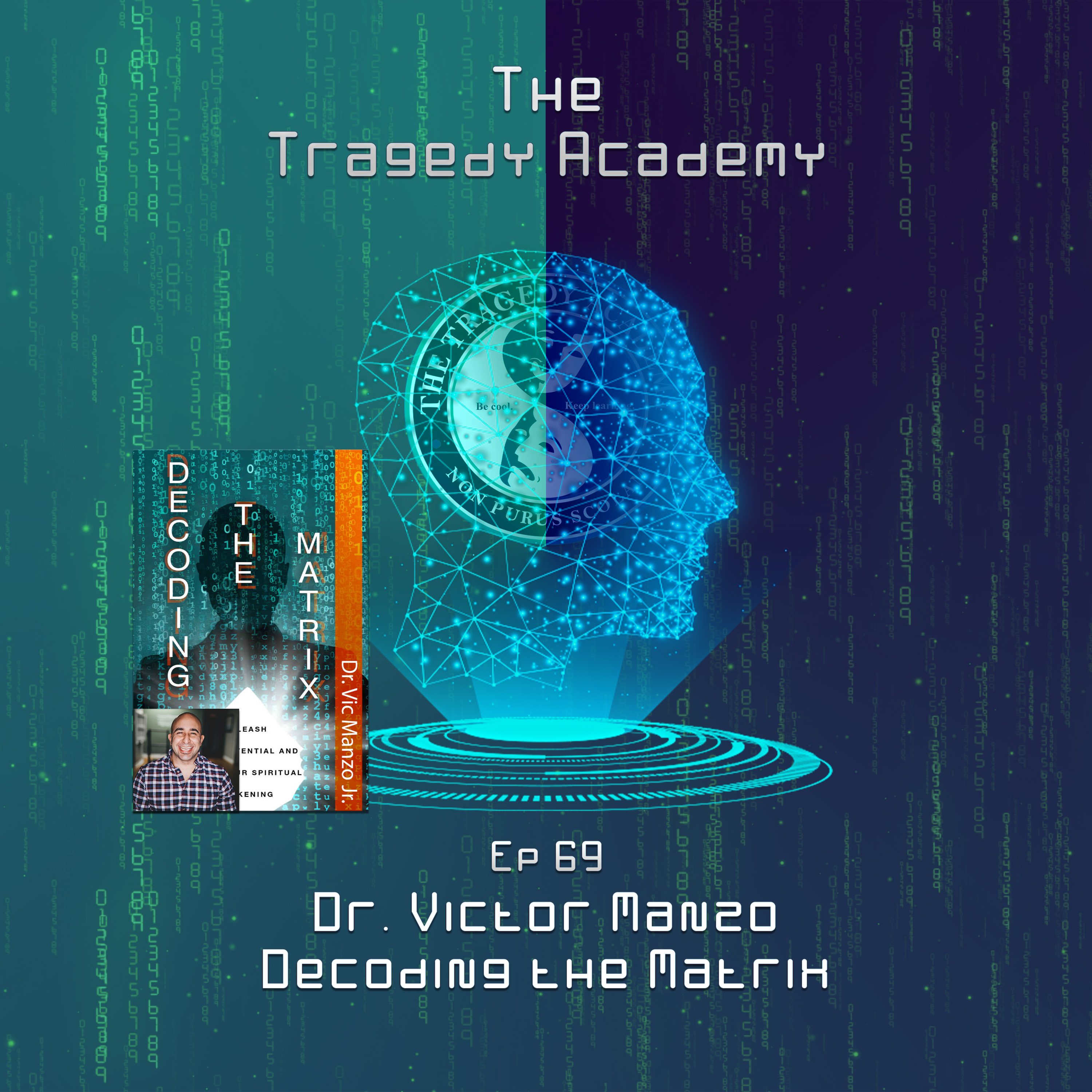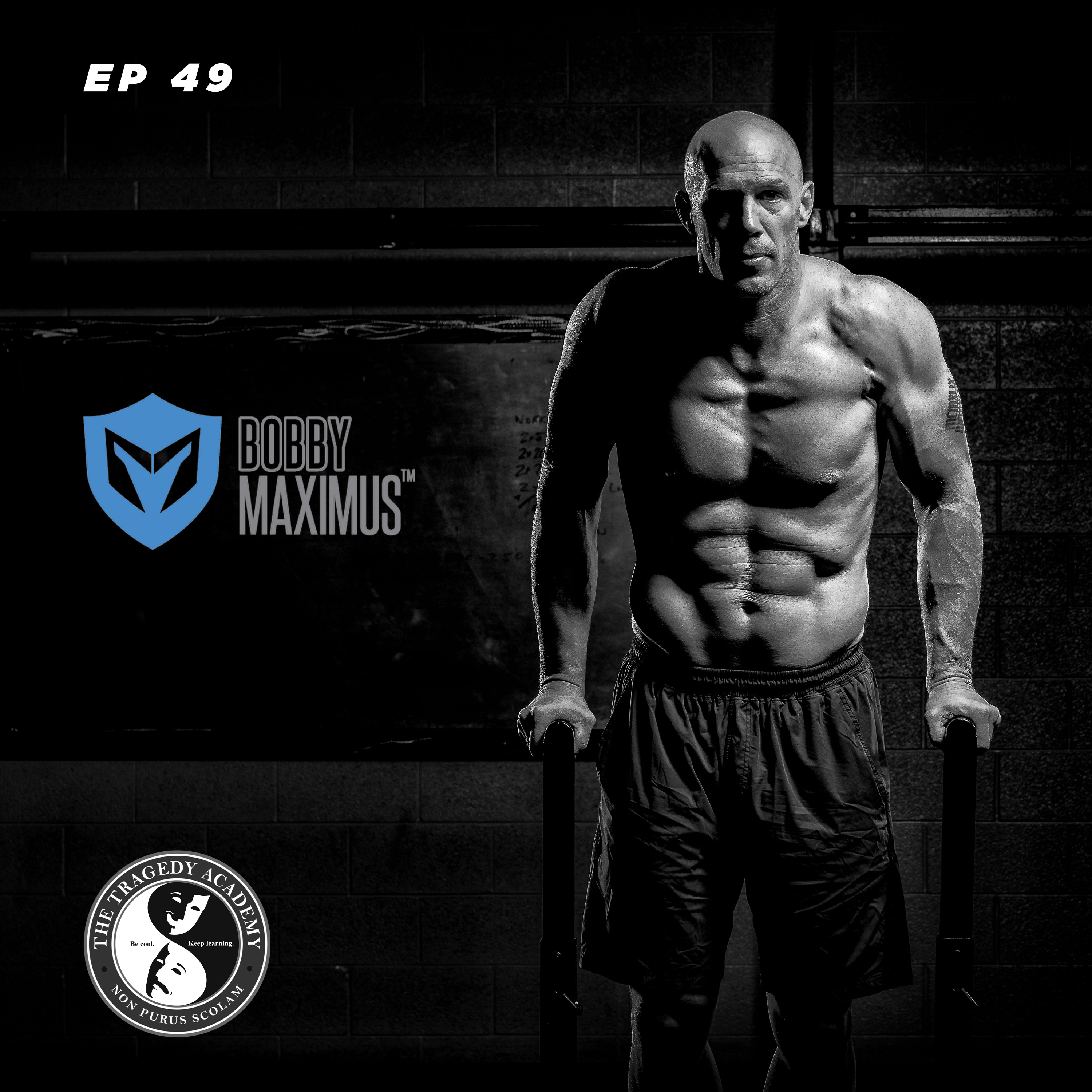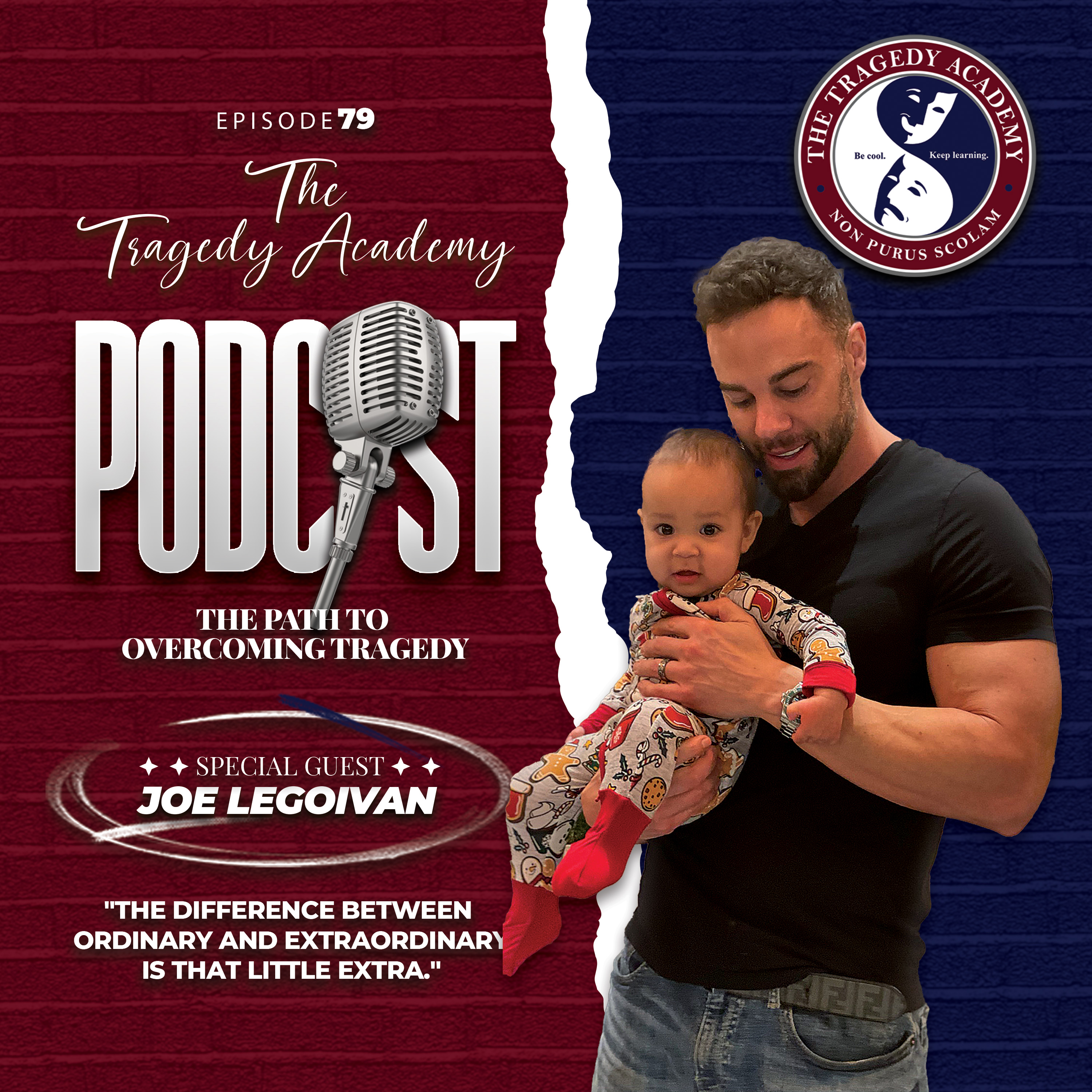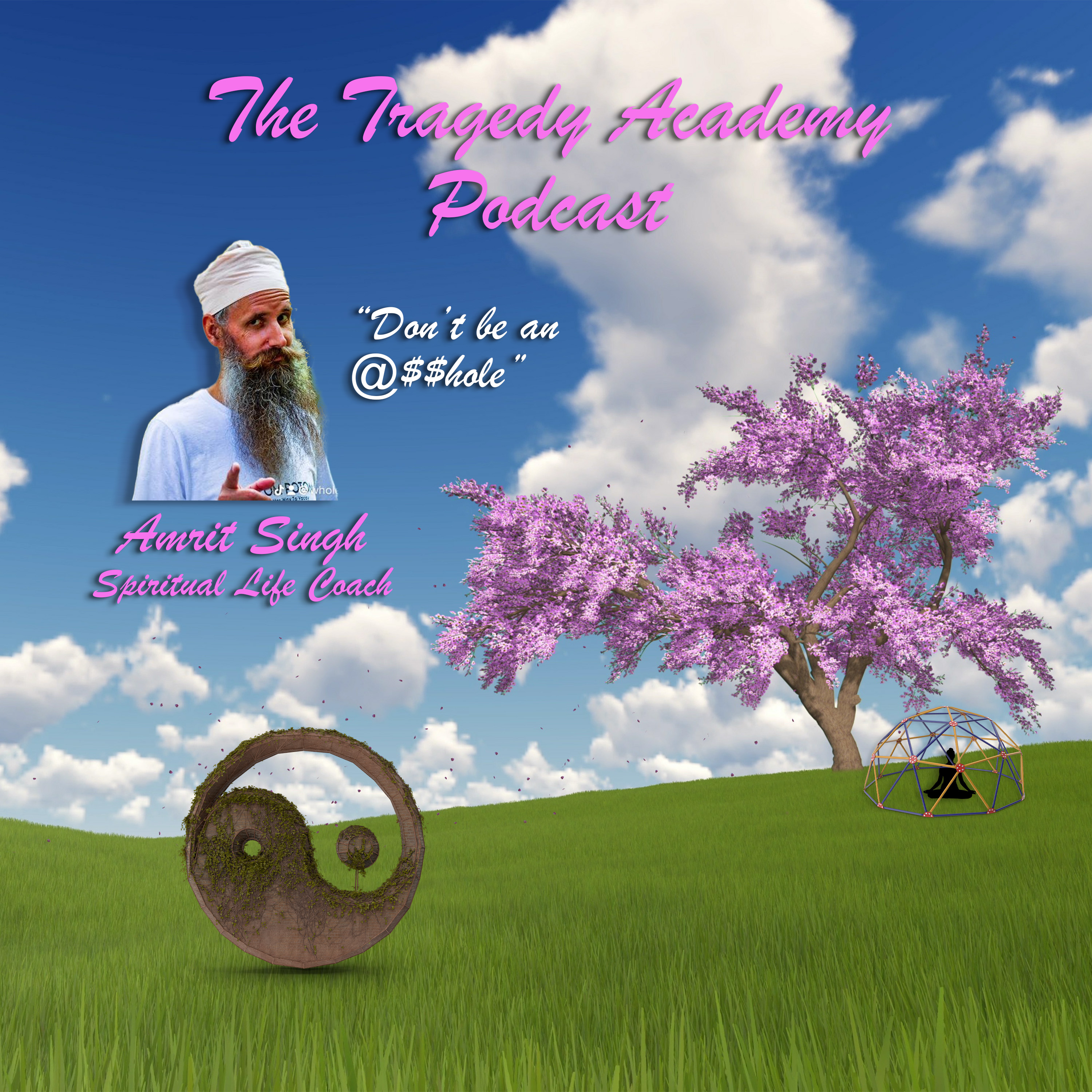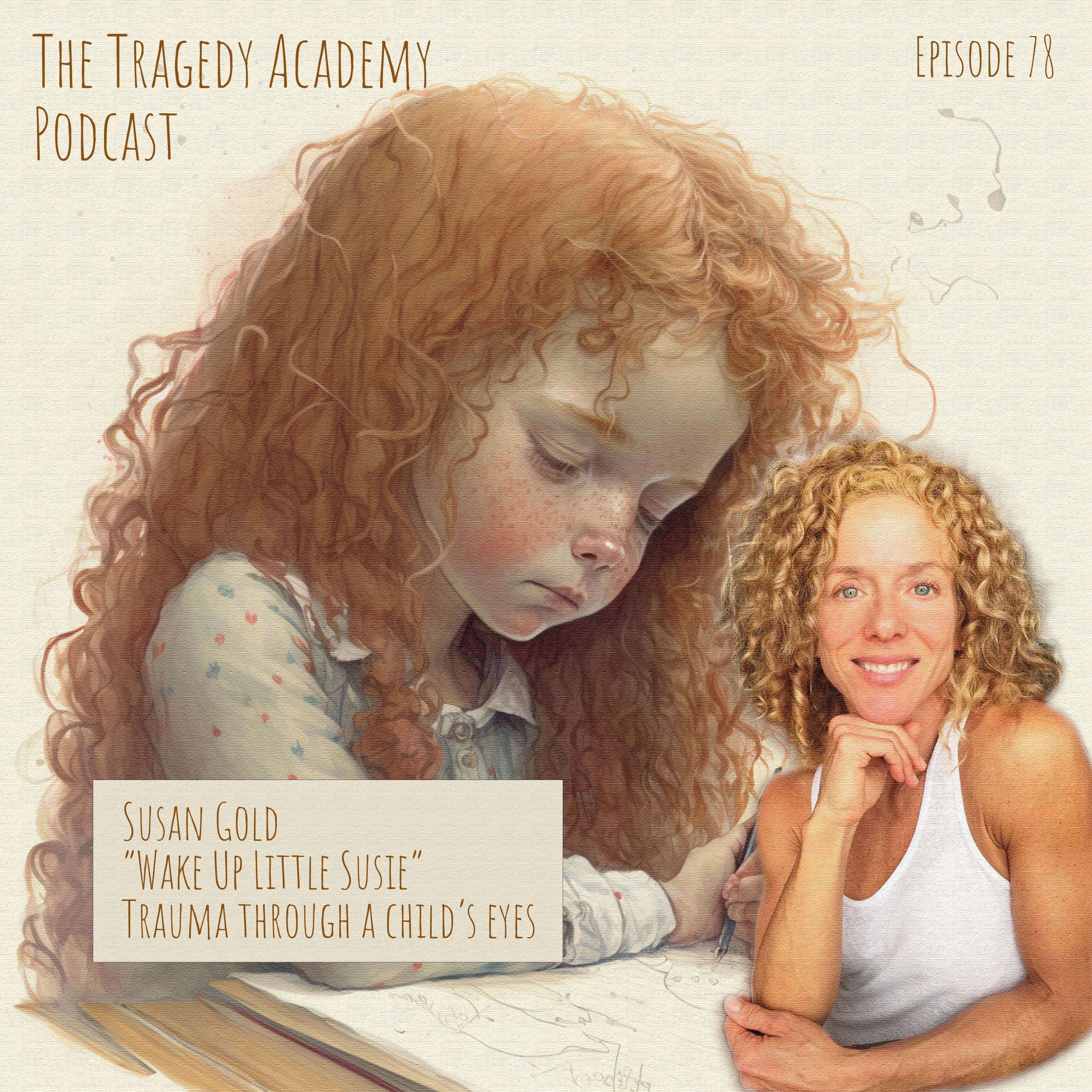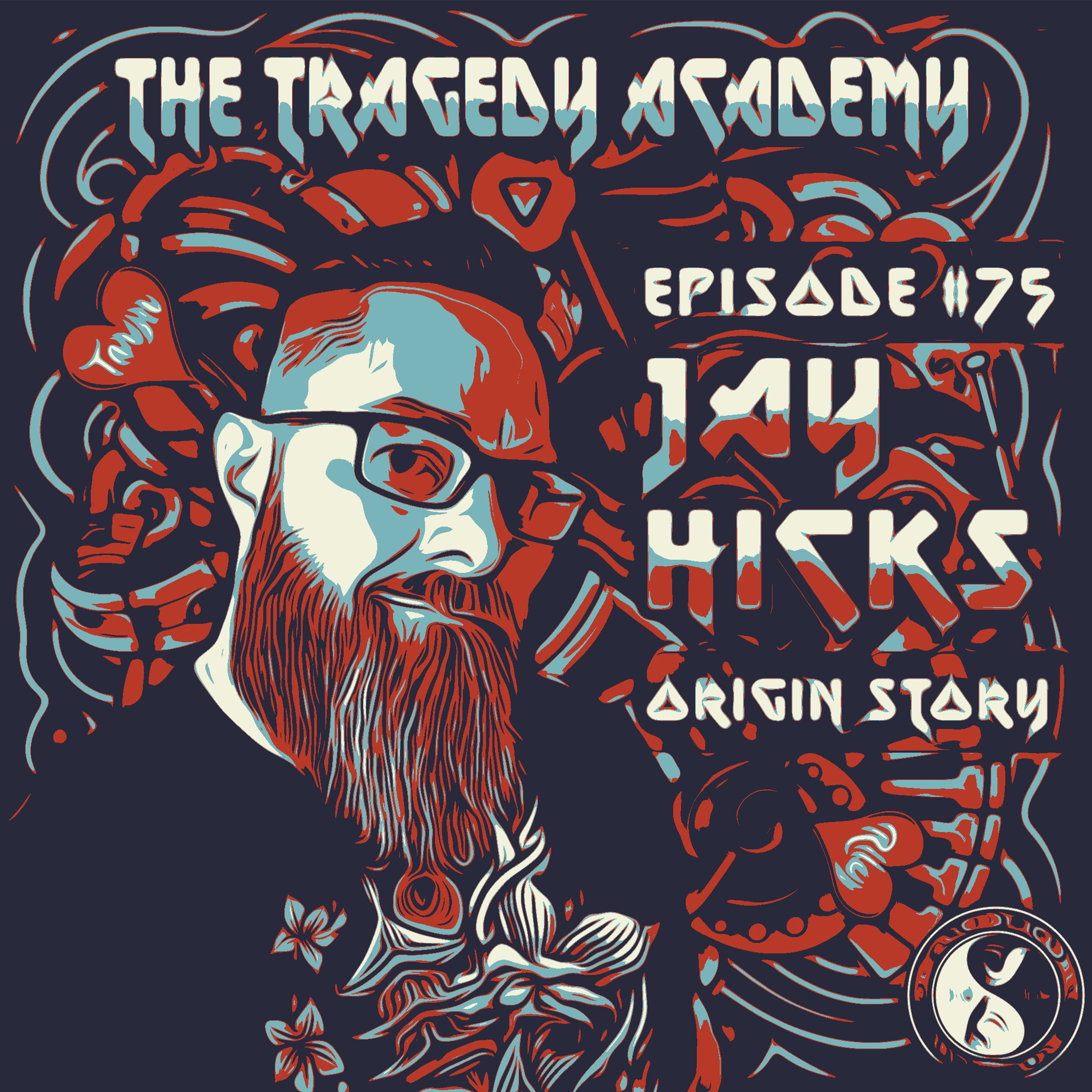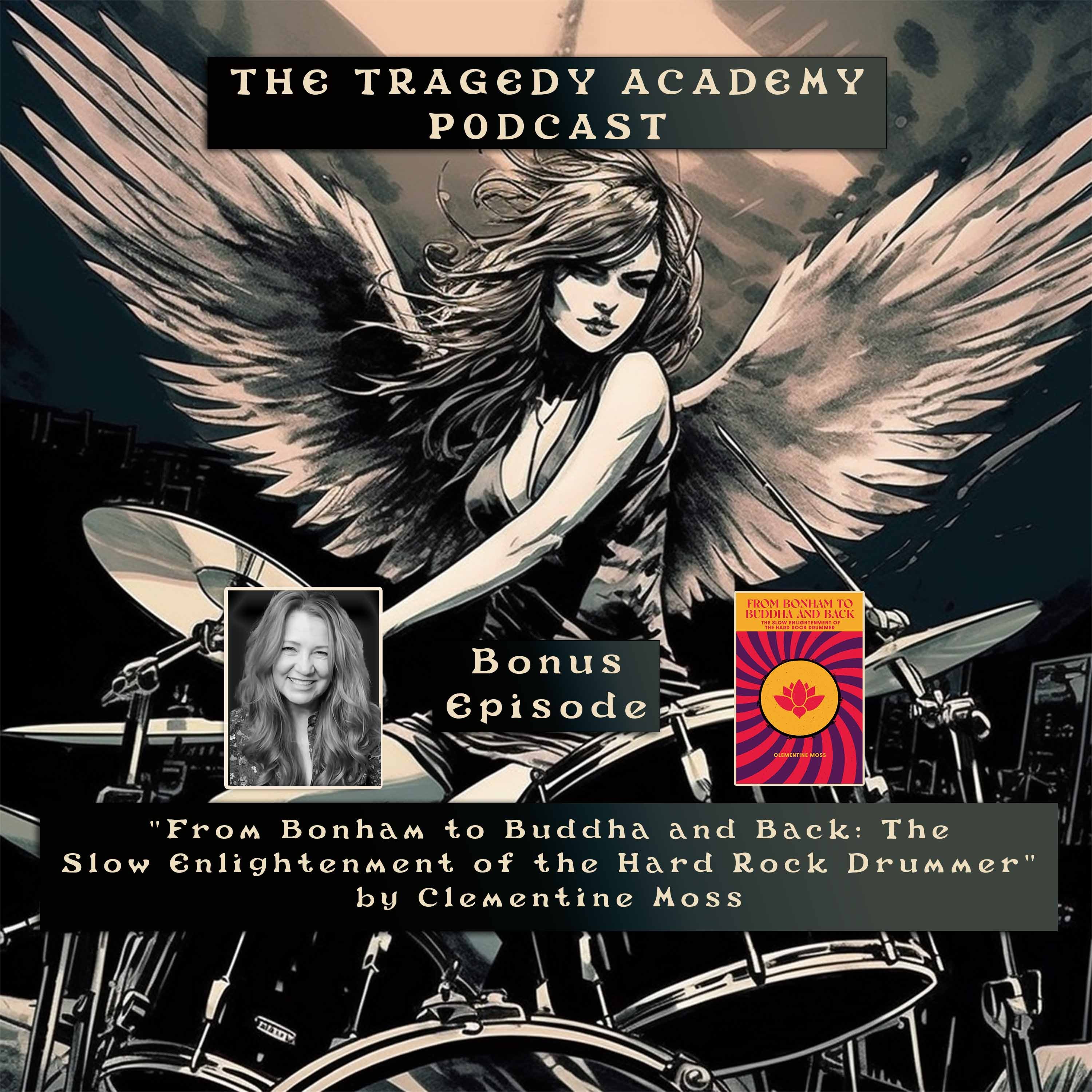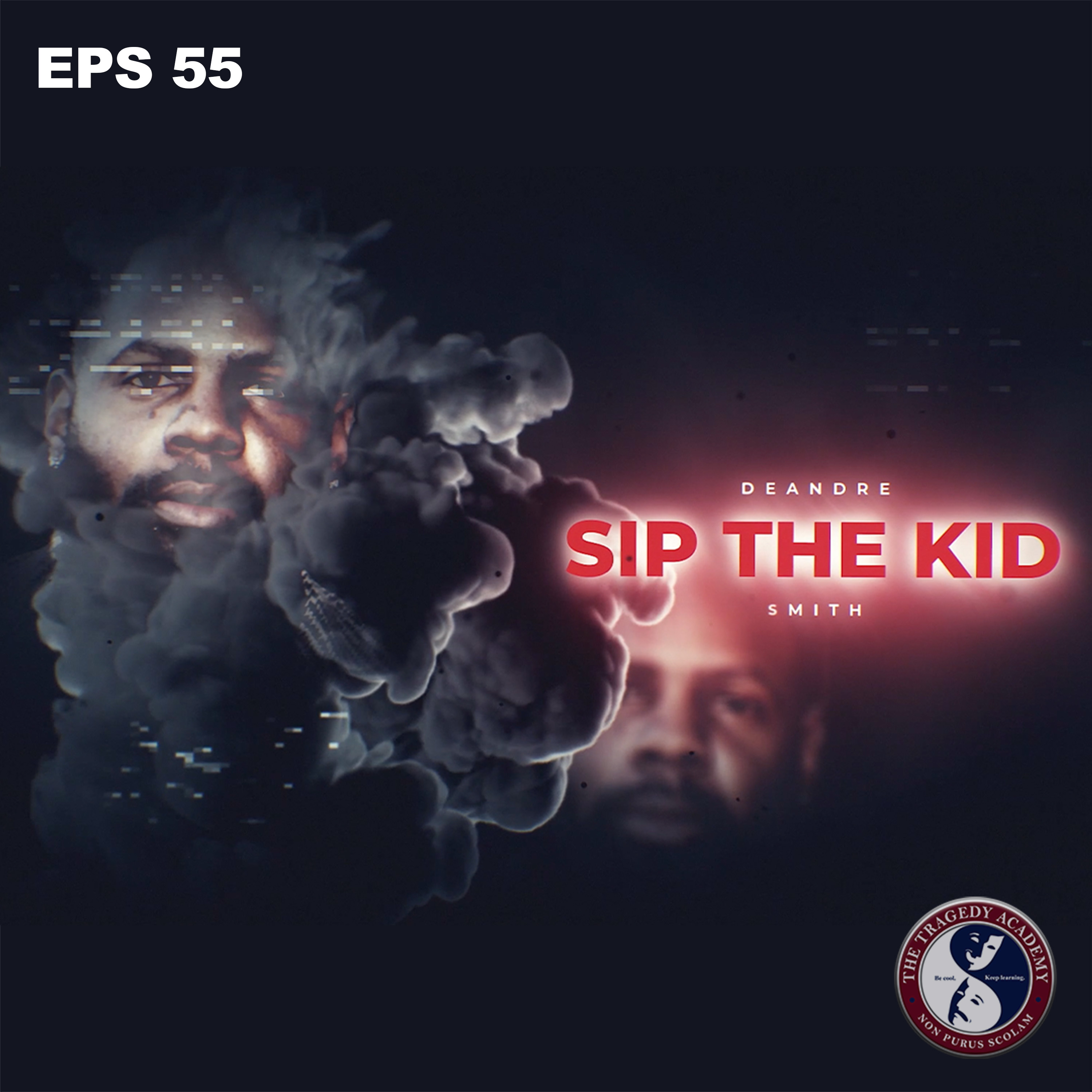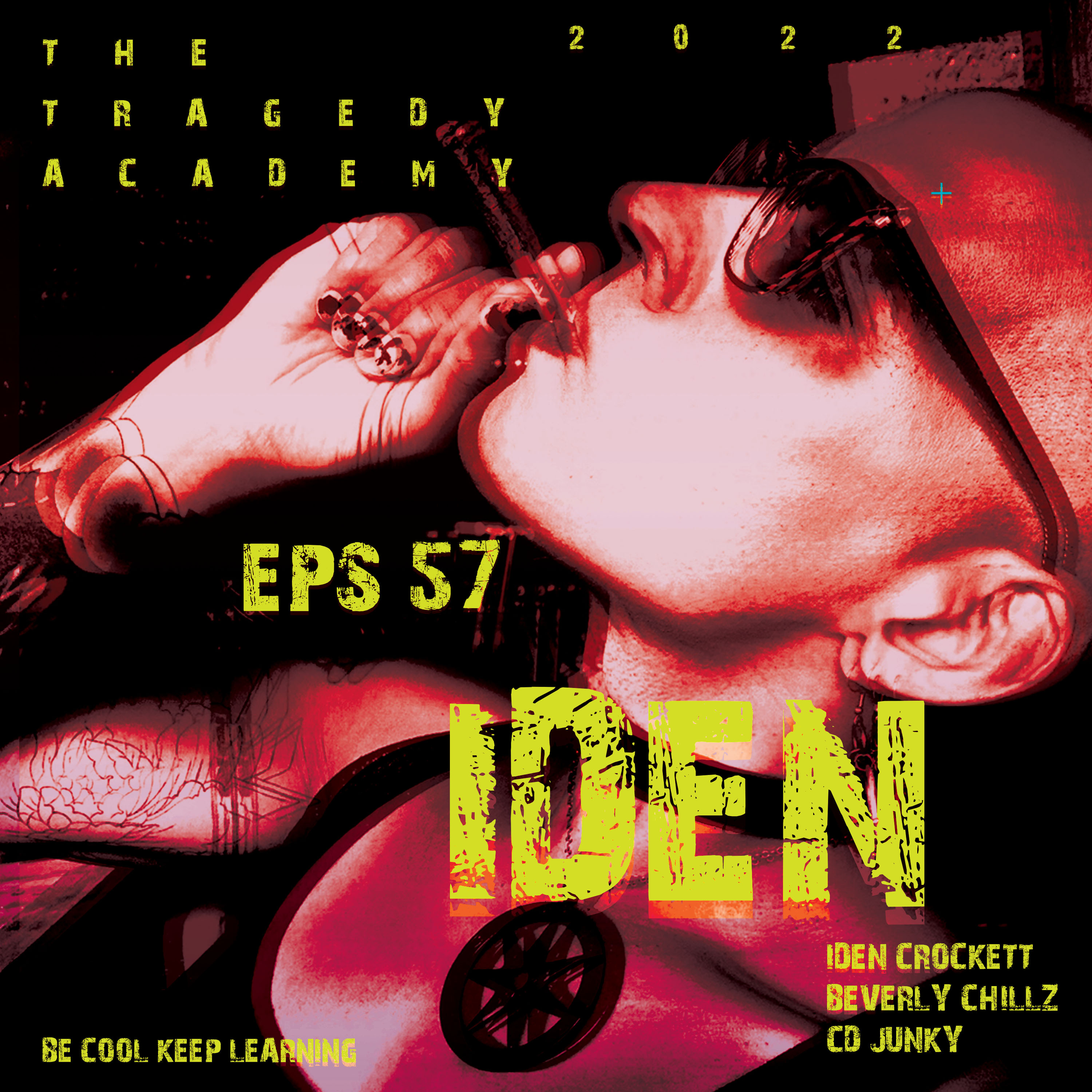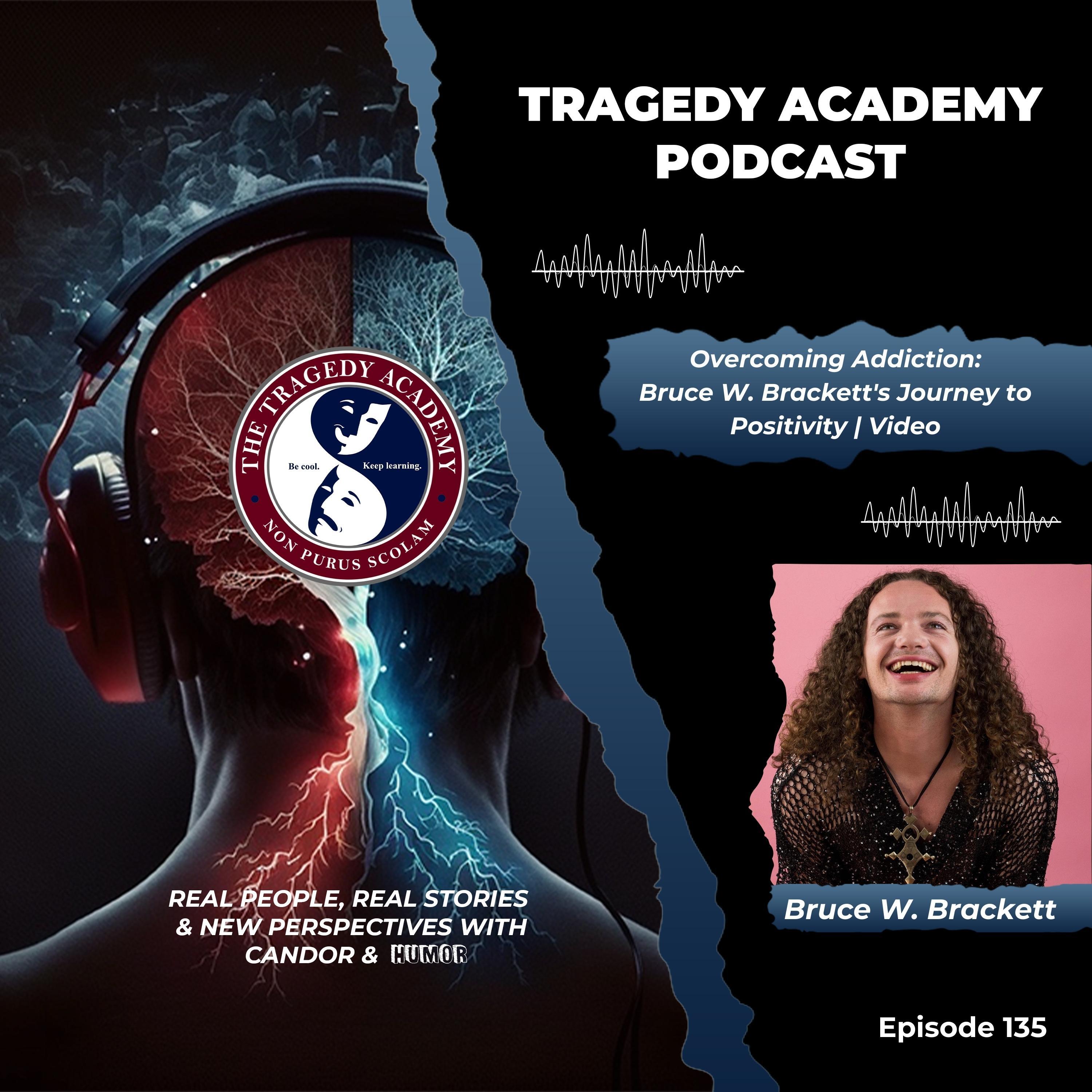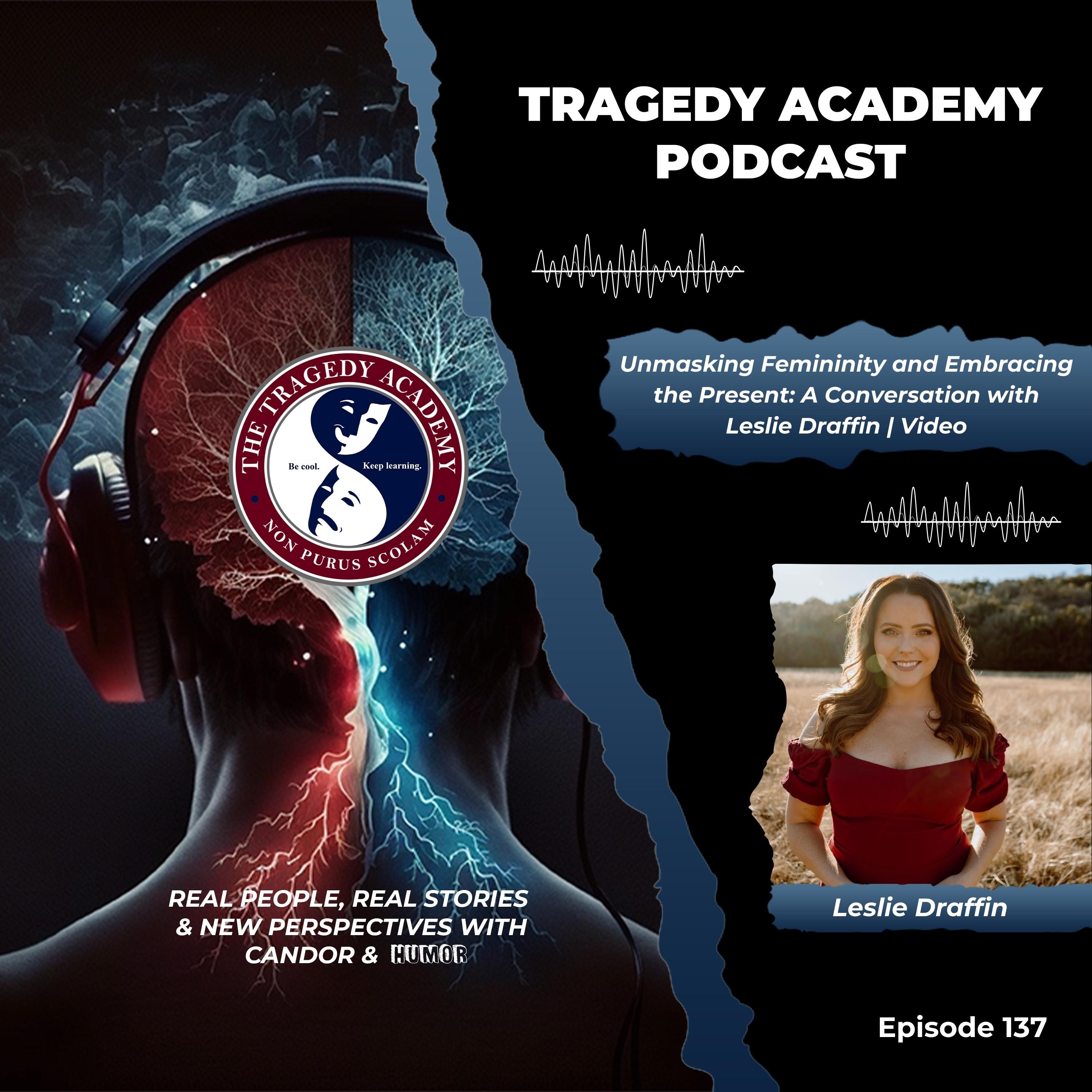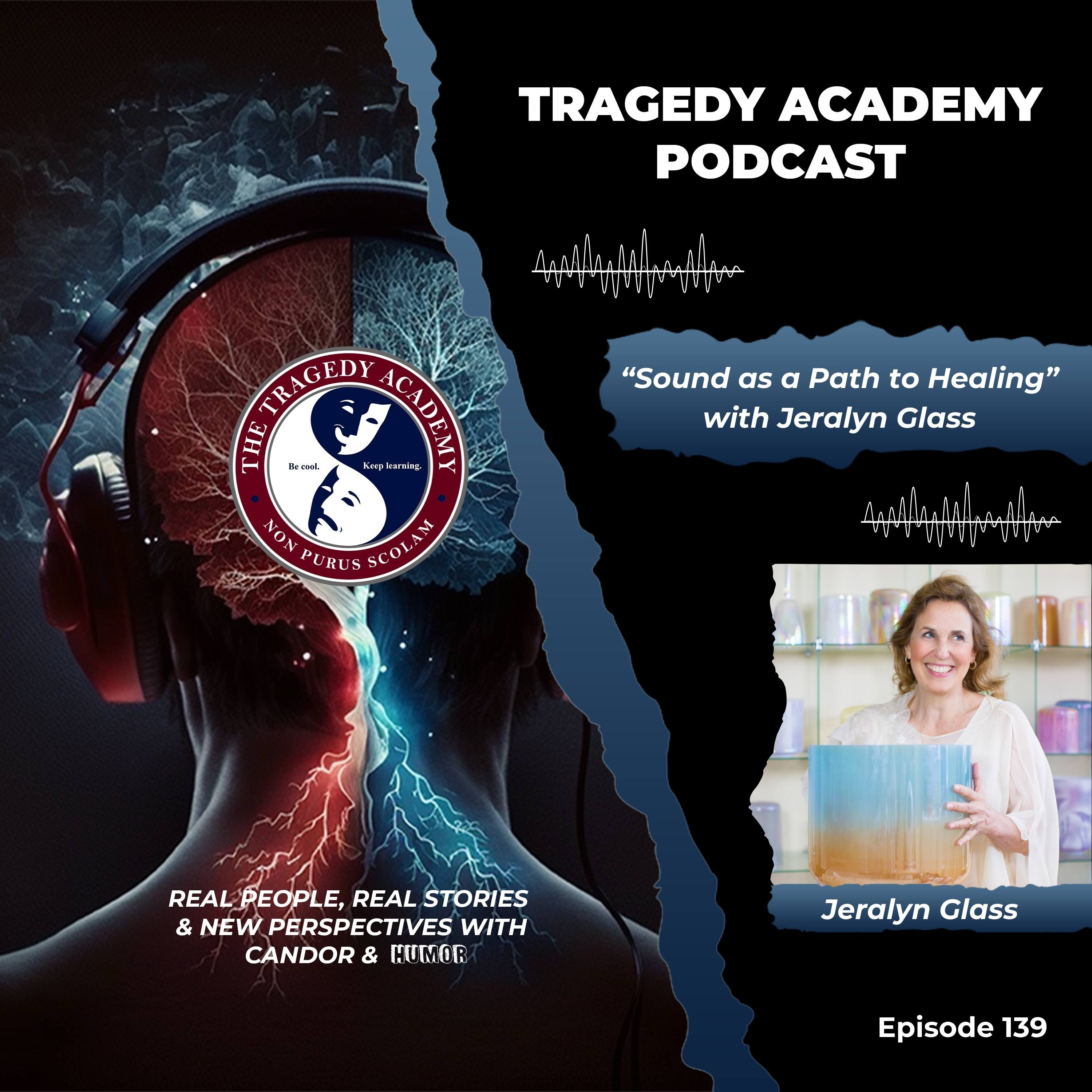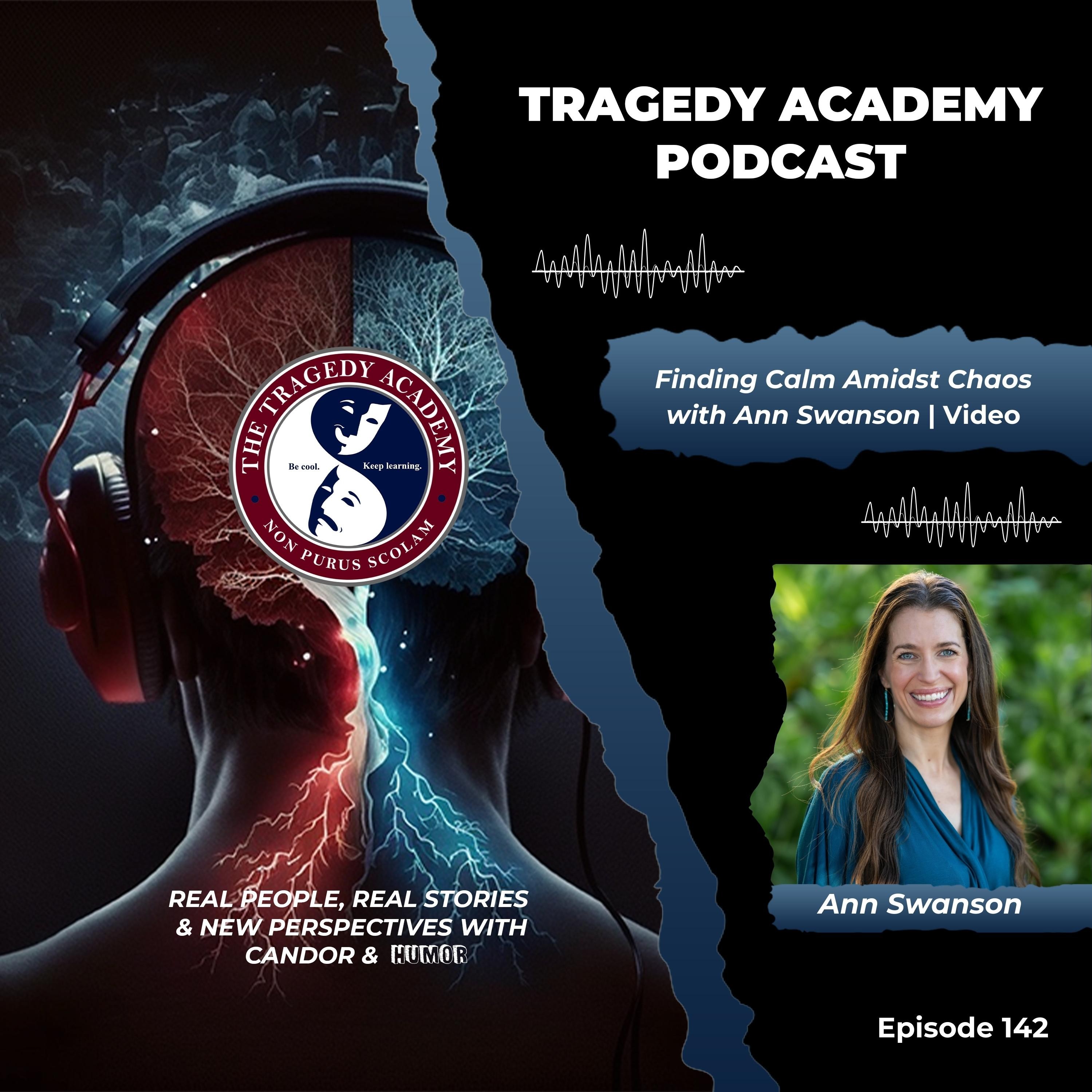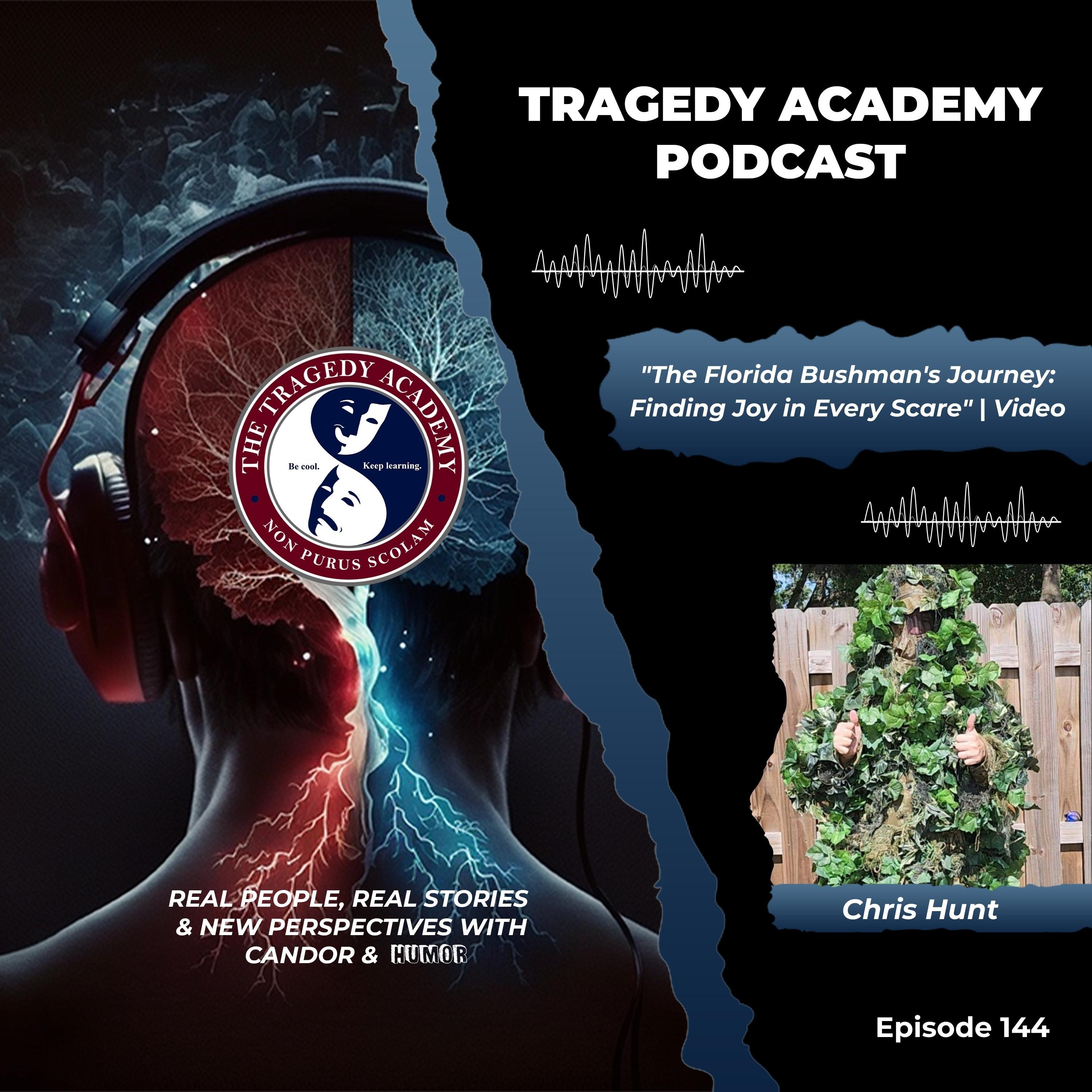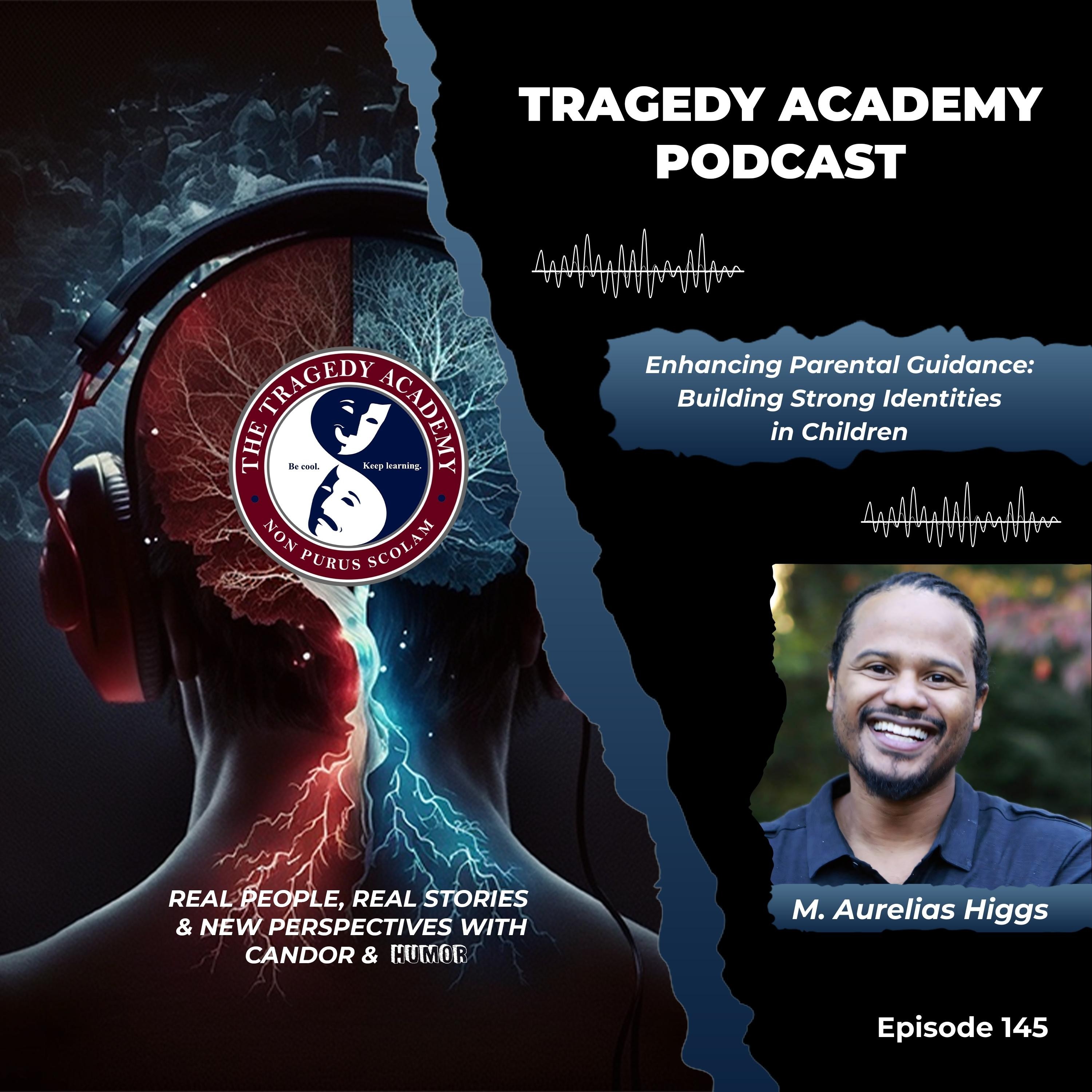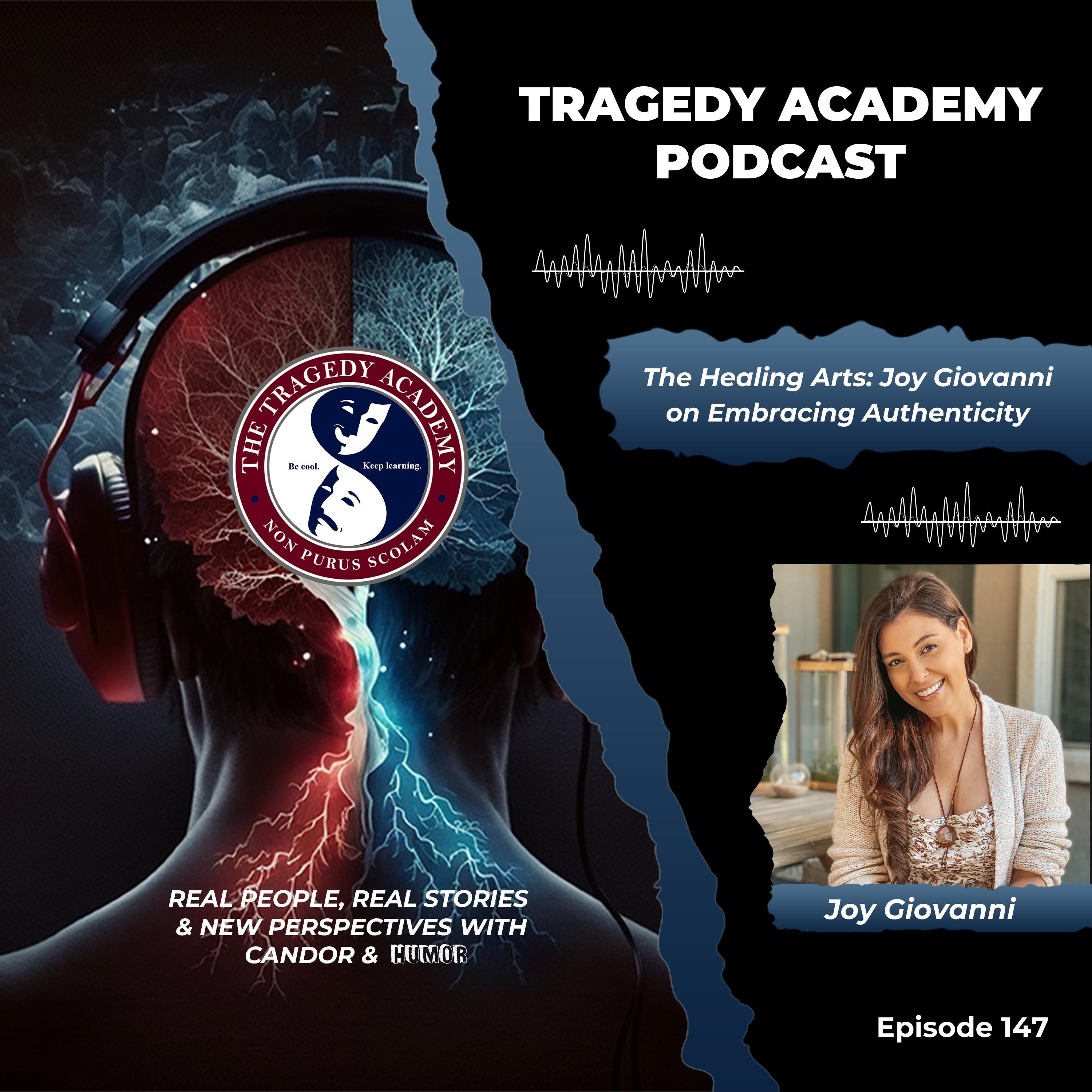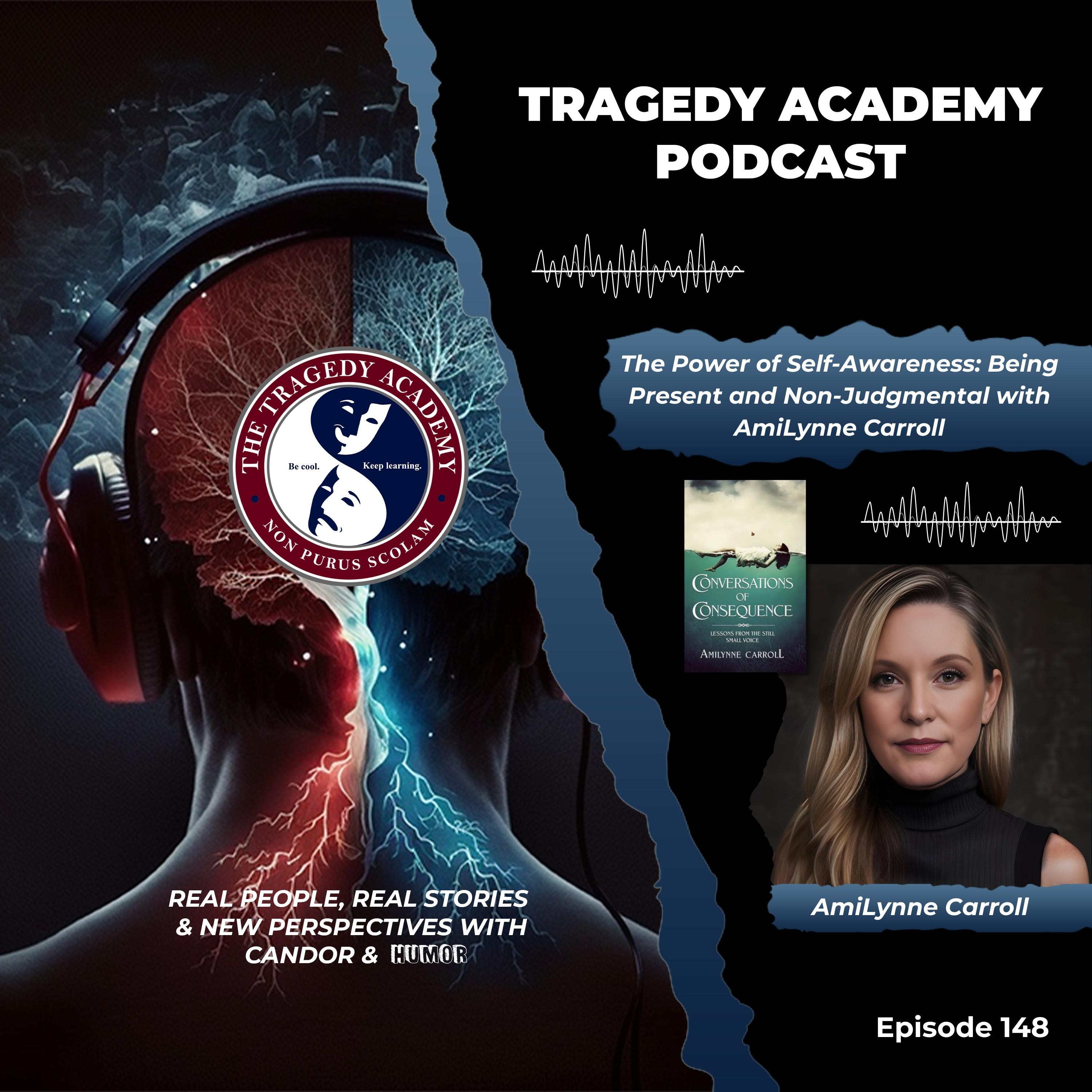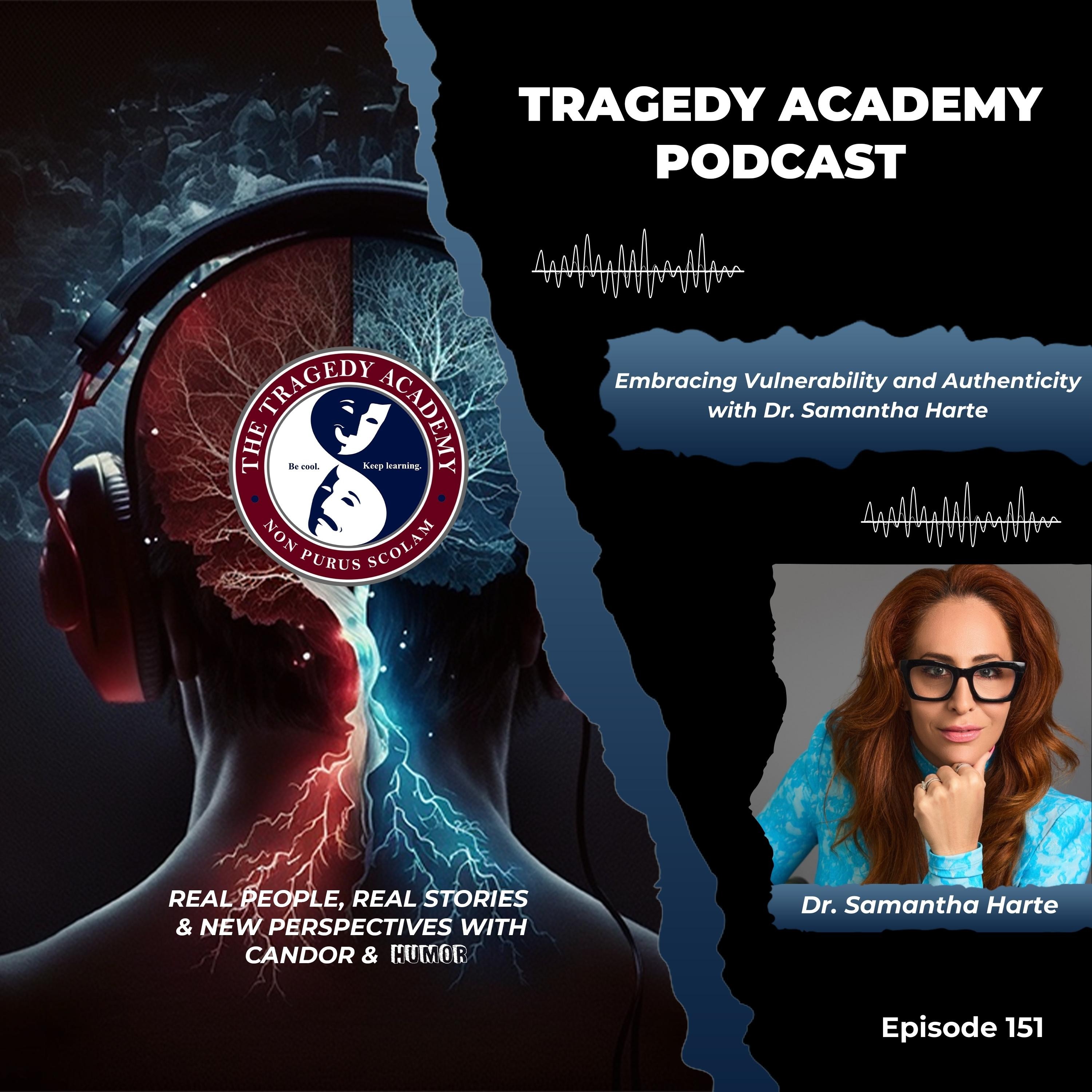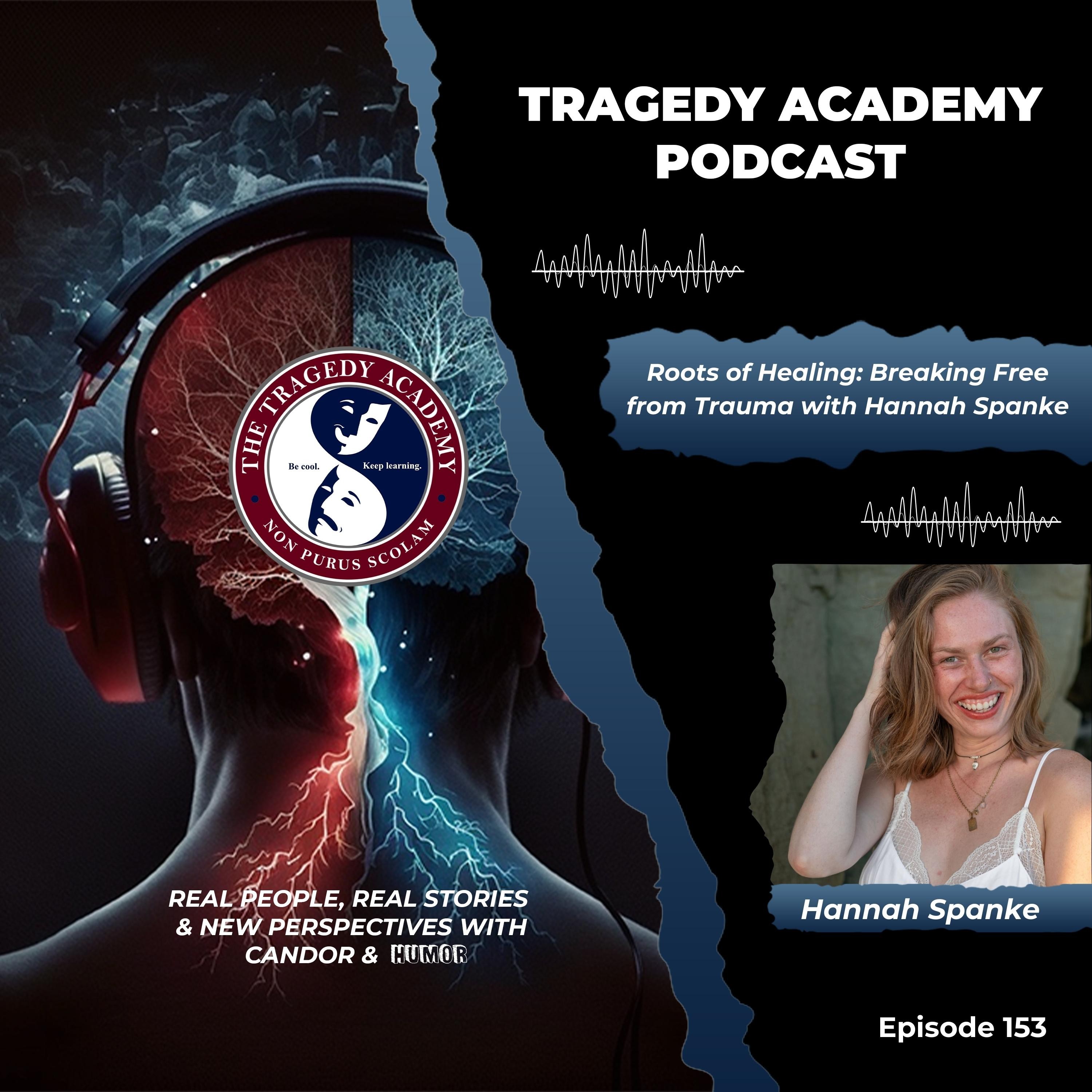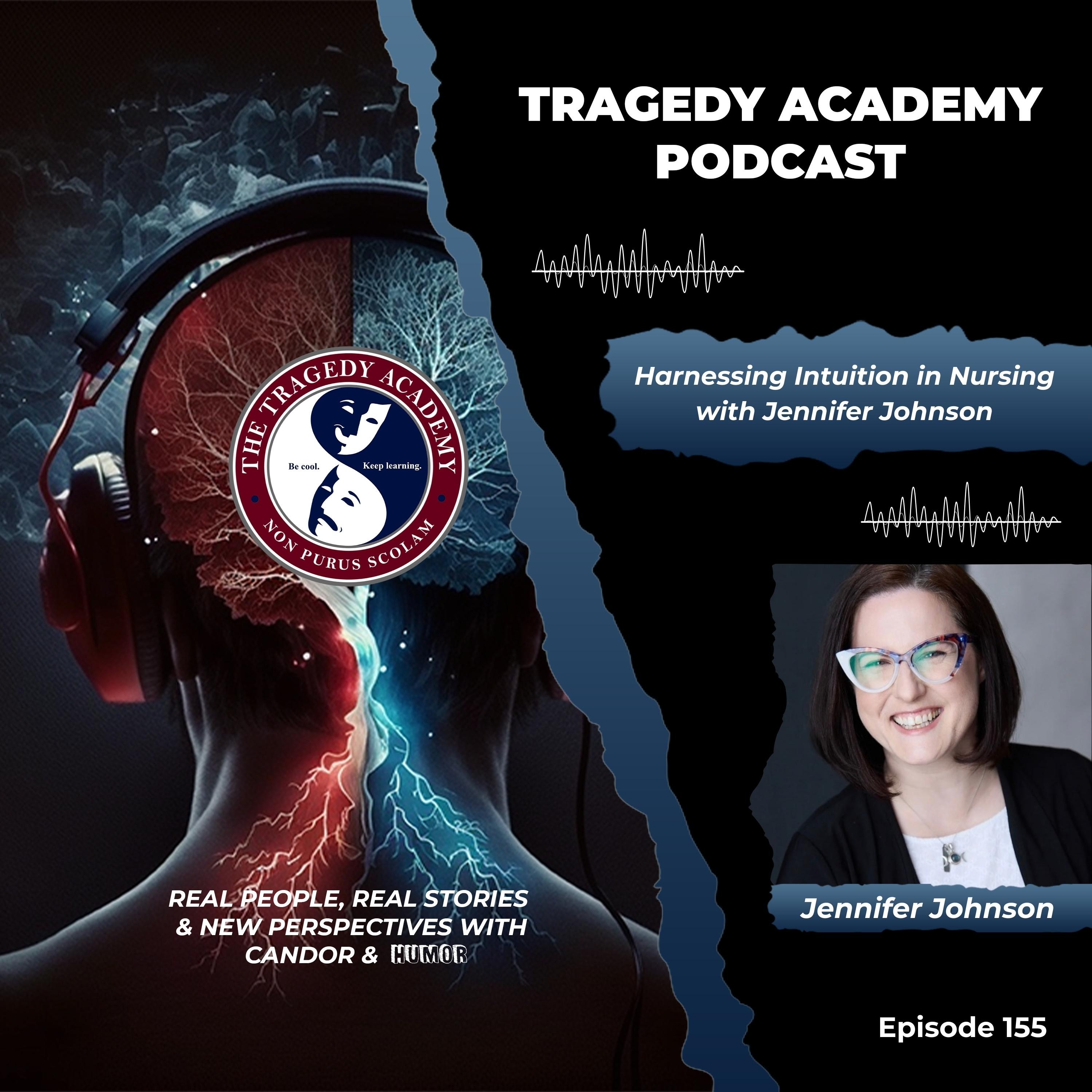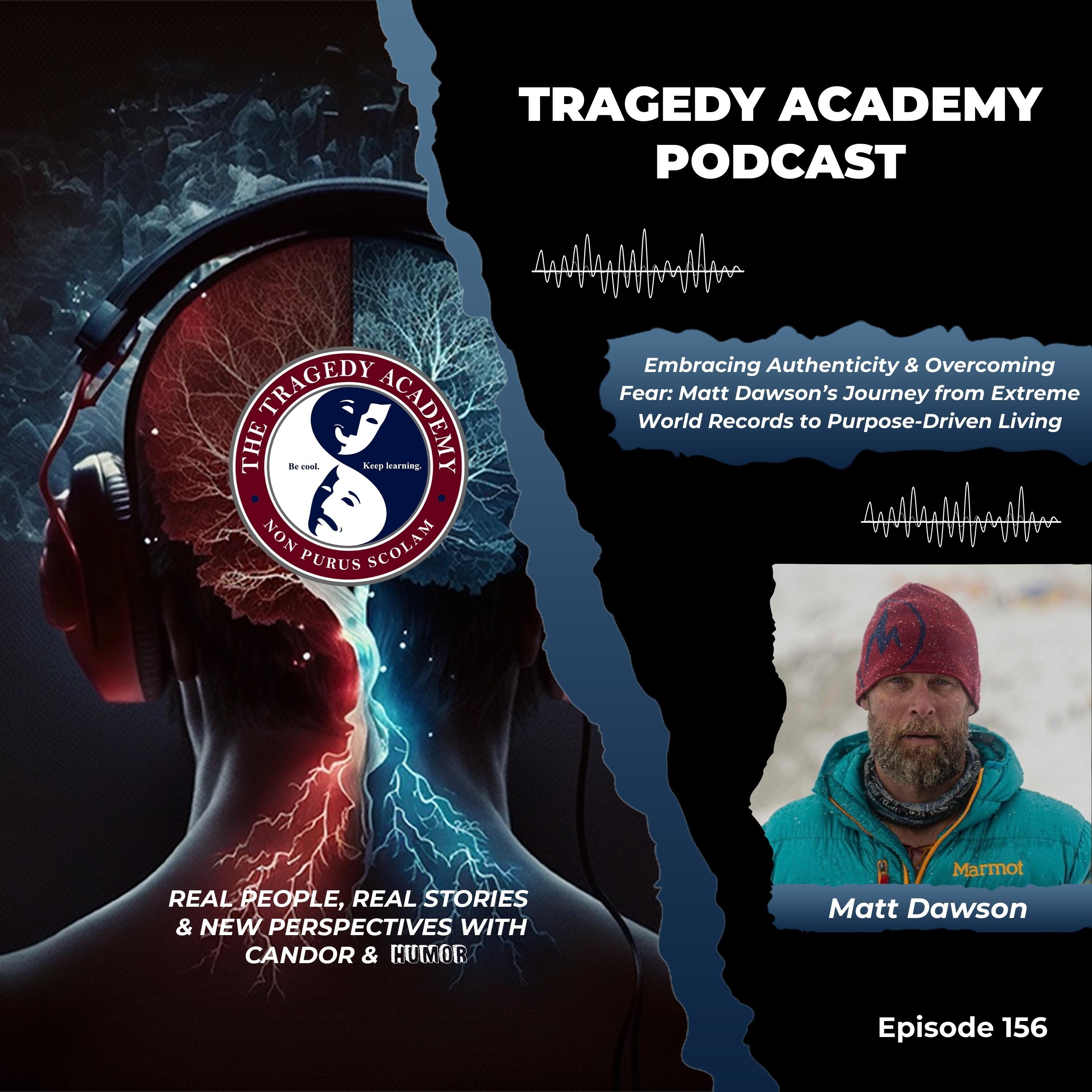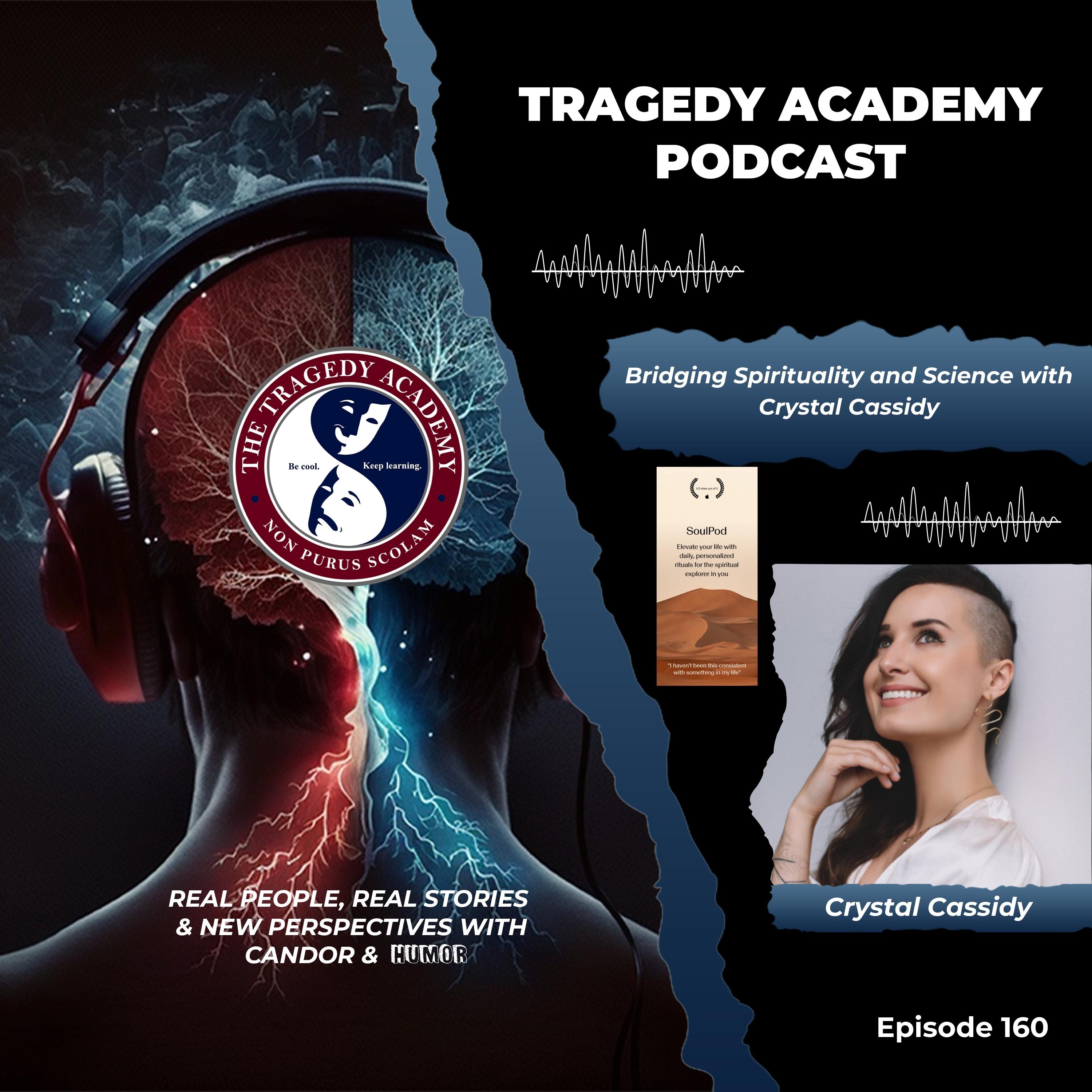Unlocking the Mind: A Conversation with Memory Champion John Graham
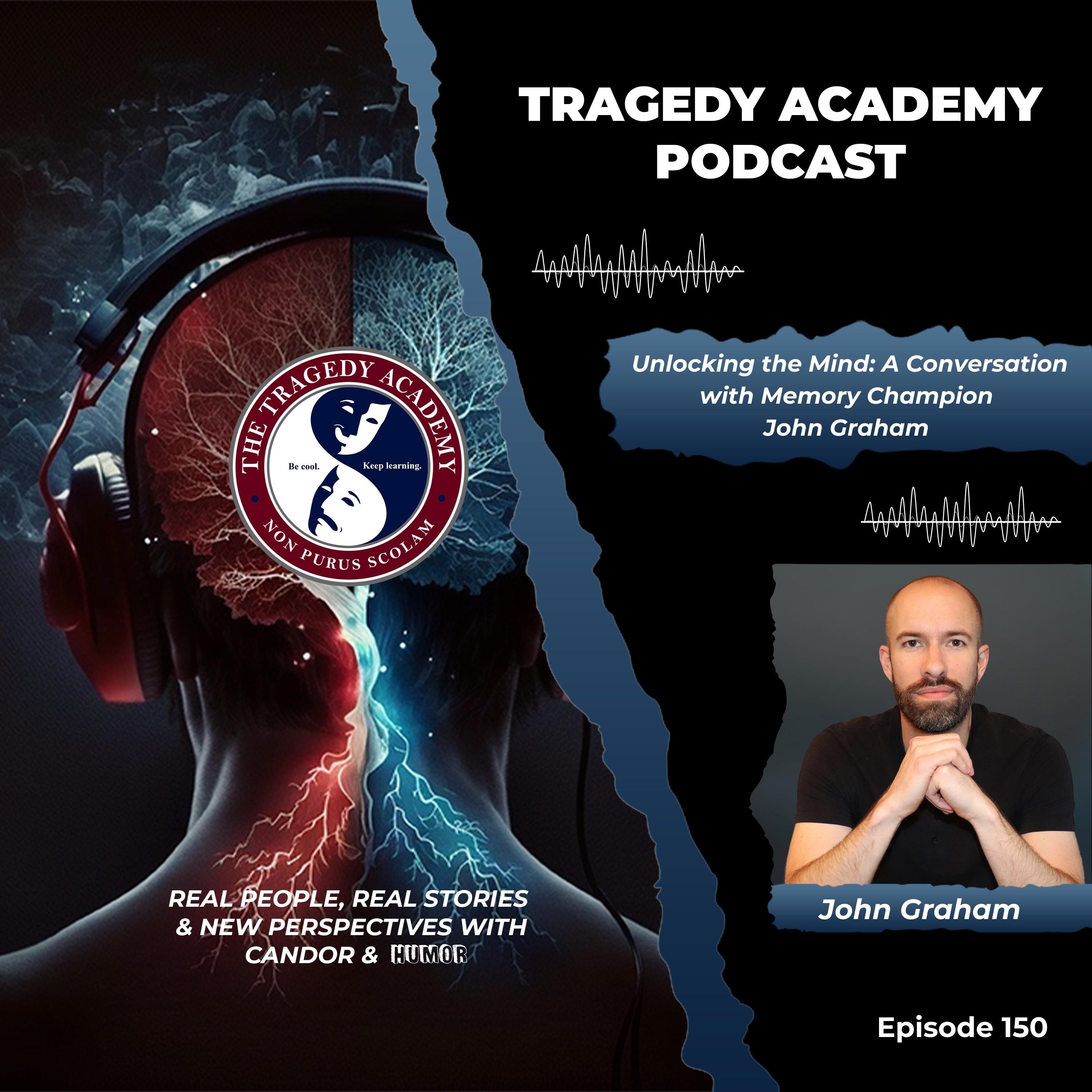
In this episode of The Tragedy Academy Podcast, Jay sits down with John Graham, a three-time USA Memory Champion and Grandmaster of Memory, to explore the incredible potential of the human mind. 🎙️ They dive deep into memory techniques, overcoming anxiety, and the profound impact of living an authentic life. This episode offers listeners a unique blend of inspiration and practical advice, making it a must-listen for anyone interested in personal growth and mental resilience. John, who is not only a memory champion but also a mentor to high performers, shares his insights on how simple yet powerful memory techniques can unlock new dimensions of understanding in our daily lives.
From the challenges of sleep deprivation as a new parent to the pressures of competing on a world stage, John candidly discusses his personal experiences and how they've shaped his approach to mental and emotional resilience. He and Jay also explore the connection between memory training and mindfulness, revealing how these practices can lead to a deeper, more fulfilling life. Whether you're struggling with anxiety or just looking to sharpen your mind, this episode will leave you feeling empowered and ready to take on life's challenges with a fresh perspective. 🌱
Key Takeaways:
- 🧠 [00:03:30] Empathy and the Human Experience: Jay and John discuss the challenges of managing empathy and the limits of what one can give to others.
- 🕰️ [00:06:30] The Power of Memory Techniques: John explains how mastering memory techniques can make seemingly impossible tasks achievable.
- 💡 [00:12:30] Mindfulness and Memory: The conversation highlights how memory training can be a form of meditation, helping to live in the moment.
- 🌪️ [00:15:30] Overcoming Anxiety: John shares his journey of battling anxiety during competitions and how he learned to manage pressure.
- 🎯 [00:38:30] Living Authentically: The discussion emphasizes the importance of authenticity and how embracing your true self can expand your potential.
Guest Bio: John Graham is a three-time USA Memory Champion and Grandmaster of Memory, known for his extraordinary ability to memorize complex information quickly. Beyond his achievements in memory competitions, John is also an entrepreneur and mentor who works with high performers, including world record holders. His journey into memory mastery began with reading "Moonwalking with Einstein," which inspired him to explore the untapped potential of the human mind. Today, John is dedicated to helping others overcome anxiety and unlock their full potential through the power of memory and mindfulness.
Don't miss this enlightening episode of The Tragedy Academy Podcast! 🎧 Subscribe now to stay updated on new episodes, leave a review to share your thoughts, and spread the word by sharing this episode with your friends. Jay brings a unique perspective to the conversation, helping listeners explore the human experience through the lens of both tragedy and triumph. Remember, Be cool and keep learning! ✌️
Want to learn more about John Graham and his incredible memory techniques? Visit our website, The Tragedy Academy, and follow him on social media or check out his latest projects. John's insights into the power of the mind and how to overcome anxiety are invaluable for anyone looking to improve their mental resilience and live a more authentic life. 🌟 Dive deeper into John's world and discover the tools to elevate your mental game!
This episode of The Tragedy Academy Podcast is a powerful reminder of the untapped potential within each of us. By embracing mindfulness, mastering memory techniques, and living authentically, we can overcome obstacles and achieve greatness. Tune in next week for another inspiring episode, and as always, Be cool and keep learning. 🌈
📲 Connect with Us!
Explore more about The Tragedy Academy: https://www.thetragedyacademy.com
🌟 Support and Grow With Us 🌟
🎧 Podcasting Made Easy: Build your stunning podcast website with Podpage:
Podpage: https://bit.ly/3LSCBh5. @podpagehq
📲Take your recording to the next level with
Riverside.FM: https://bit.ly/3ImjNWD @riverside.fm
👕 Get the Gear Loved Jay's t-shirt from the latest episode? Grab yours at Into the AM. @intotheam
Into the AM: https://bit.ly/431MLD5.
📘 Expand Your Mind Dive into our recommended reads at our Bookshop.
Bookshop: https://bit.ly/42pPHcv.
✅ Stay Updated – Subscribe!https://www.youtube.com/channel/UCEUXqlregig6vcrvuVNGlKg and never miss an episode.
📱 Follow Us on Social Media
- Instagram: @thetragedyacademypodcast
- Facebook:@TheTragedyAcademyPodcast
- Twitter: @Tragedy_Academy
- TikTok: @thetragedyacademy
💖 Support The Tragedy Academy. Your support helps us keep bringing meaningful content. Consider donating through PayPal or BuyMeACoffee.
PayPal Donate: https://www.paypal.com/donate?hosted_button_id=YMU9L4TBWX6AG
Buy Me a Coffee: https://www.buymeacoffee.com/tragedyacademy
The Tragedy Academy is a show created to bridge societal divides in a judgment-free zone using candor and humor.
Be cool. Keep Learning.
[00:00:58] Jay: My name is Jay. I'm joined today by John Graham, three times USA Memory Champion, Grandmaster of Memory, entrepreneur, and mentor to high performers, including a world record holder. How are you doing today, John?
[00:01:11] John Graham: Yeah, I'm a little sleep-deprived. I've got a newborn baby, but I'm doing really, really well.
[00:01:16] John Graham: Happy to be
[00:01:16] Jay: the front door. I have a newborn coming on around the 11th of August.
[00:01:22] Jay: So this is what I have to look forward to. Sleep deprivation, correct?
[00:01:27] John Graham: Yeah. Oh, man. Oh, man. It's a [00:01:30] When you're in the thick of it, you're like, will this ever end? But I know it'll end soon.
[00:01:35] Jay: I like to look at things in manageable blocks. And I also like to look at things in who's done it before me and who's been capable of surviving it. And when I look at this particular scenario, first of all, I can tell you, there's a lot of people that have handled having a kid up through timeframe, right?
[00:01:55] Jay: And we know that there are some real dodos that have allowed people to survive. Or have brought children into the world. So I'm like, I'm telling my wife, I'm like, all right, look, I'll give her examples. I'm like, you know, this person like they did it. And she's like, yeah, I guess you're not wrong. I'm like, so there we go.
[00:02:11] Jay: Right. And then I look at the time cycle. I'm like, are these babies sleep like 18 hours a day, but it's in increments. And I'm like, usually like three hours. I'm like, okay, I can handle that three hour blocks. All I have to do is prepare for a three-hour block.
[00:02:25] Jay: a
[00:02:25] John Graham: Just, uh, don't Yeah, I like your thinking. I did the same thing. But [00:02:30] don't, uh, don't tie yourself too much into expectation. Because then you get a third Your third child is the one that doesn't sleep. And that's our current scenario. She has to be held
[00:02:39] John Graham: to fall
[00:02:40] Jay: Oh No,
[00:02:41] John Graham: It's, nice, but it's
[00:02:42] Jay: good and bad
[00:02:43] John Graham: Yeah, You don't
[00:02:44] John Graham: get anything done that you think you will.
[00:02:48] Jay: Well, see, I’m fortunate, um, our studio is here, um, in my home, and I also, uh, my wife works from home. We have a pretty large place. So we'll both be here throughout the day. My mother-in-law is nearby, So we're gonna have support from an Italian farm, you know born lady That you know is is able to cook your entire kitchen in 10 minutes so
[00:03:10] Jay: i'm excited to To have them here and i'm excited for you a newborn child.
[00:03:14] Jay: That's uh, that's something to celebrate
[00:03:16] John Graham: Yeah, well, cheers to us. And, uh, cheers to you for the upcoming.
[00:03:21] John Graham: And we're both going to be amazing dads.
[00:03:24] John Graham: For
[00:03:24] Jay: I believe so. So, John, why don't you tell me a little bit about yourself, how you got here, and we'll kind of [00:03:30] go from there.
[00:03:30] John Graham: Yeah, I'm known as the three time USA Memory Champion. So, people are very curious about that. You know, some people assume I have a naturally born memory, photographic memory, something like that. And Actually the exact opposite. I, I learned all the techniques that made me a champion and that, you know, it was a lot of. Hard work and application. But it was literally 10 years ago, 2014. I read a book called moonwalking with Einstein. So I'd already graduated school. I was 27 years old and I read this book, so I didn't get to use it on all my studies. You know, I was a pretty good student, but.
[00:04:07] Jay: Isn't that, isn't that crappy how that works out? It's always in retrospect. It's kind of like with audio engineering. Now they're coming out with all these AI, you know, systems that'll clean up audio for you. And I'm like, like only five years ago when I started this, I felt like I had like a chisel and a
[00:04:23] Jay: hammer and all of a sudden guys are showing up, like hitting one button and they're like, hello, how are [00:04:30] you?
[00:04:30] Jay: And I'm like, no, this isn't fair.
[00:04:31] Jay: So I get it. You just, it comes after the, uh, after the beginning.
[00:04:36] John Graham: what, what the benefit for you is all the hard work, discipline, perseverance. You have that, whereas the newer generation, they have it too easy sometimes, you know, so it's like the adversity, you know, isn't, isn't there, you know, it might be there for different things, but yeah, so that's your advantage. Um, you know, I read this, I, I started right away, I competed in the world championship six months after reading that book, you know, why not?
[00:05:01] John Graham: Right. Cause.
[00:05:02] Jay: Holy, I love that though. You embraced it. Let's go for it.
[00:05:06] John Graham: Well, there was a, there was an award called the grand master of memory that you had to memorize at the world championships. You had to memorize 10 decks of cards in one hour. That was one event. You had to memorize a thousand digits in order in another event. And you had to memorize a deck of cards in under two minutes, one deck and under two minutes and the other event.
[00:05:26] John Graham: And I was like, I could do that.
[00:05:28] John Graham: You know,
[00:05:29] Jay: I could [00:05:30] do that
[00:05:31] John Graham: yeah,
[00:05:32] Jay: to me. I'm sitting here like this. This sounds so ridiculously. Unfathomable. And like, if somebody offered me this opportunity, like as they kept adding, as you kept going, I was like, no, and double no. And now this is a joke. This is absurdity. And so you had to memorize all that in the first go.
[00:05:54] John Graham: yep. There were, there's 10 events. Three of those events were those key events that I had to, you know, reach those benchmarks. And yeah, it sounds insane, like to the average person and me at the time, I was like, this is insane. But when you actually start the techniques and learn what the mind wants and learn how to store information in order, and it, it makes so much sense. And, you know, for example, uh, 2019 was my best year. I, I, memorized the deck of cards. I looked at a full shuffled deck of cards for 21 and a half seconds and memorized the order. [00:06:30] That shows you like, what's possible with the mind, right? What's possible if you take these to the depths.
[00:06:36] Jay: I completely get what you mean when you say the possibility of the mind or the capabilities that we don't understand that exist. I think we're going to get into some very deep conversation. Um, and I'm excited about that. And on its surface, the discussion we're having is these really cool techniques that show up, um, you know and allow you to maintain or retain information over a short period of time in large quantities, so to speak.
[00:07:05] Jay: Um, using, is it mnemonics? Is that how it's.
[00:07:09] John Graham: Sure, mnemonics, yeah.
[00:07:10] Jay: right and not necessarily that's what you're doing right now Um, or that's the only thing you do or something like that But I just know in general that's the term used for what I used to do um in the military for like boards and things like that and I didn't even realize when I was reading through this You know these techniques I was like, oh well i've been doing this since [00:07:30] the dawn of time and it was you know things like You know how to treat for shock and I always had something in the back of my head that was as soon as I saw It's pilgrim It's position, elevate, locate, or, you know, look position, elevate, loosen, climatize, reassure, and notify.
[00:07:46] Jay: It's always there in my head. And I've done that my entire life grabbed, like even my passwords, like my passwords are long, ridiculous sentences with, you know, different punctuation and capitalization and use of like special keys in ways that. I will only remember by doing it with a sentence. And I'm guessing that's something similar to mnemonics from what I could understand.
[00:08:17] John Graham: Yeah, that's a strategy of acronym where you're chunking a sentence into like the first letters of that sentence into a password, right? So it's easier. You're making something memorable by making it a story [00:08:30] or an association to link it, right? You're making it condensed and then you're associating it with something to remember it.
[00:08:37] John Graham: Yeah, so it's beautiful technique.
[00:08:40] Jay: I it's me fighting my ADHD and my own memory issues that I've had throughout life. It's, and I feel like it's, um, it's a way to store things longer for me.
[00:08:57] John Graham: 100%.
[00:09:00] Jay: Let's talk about what having a great memory or these techniques can reveal to somebody over time, say, with scenarios like synchronicity or.
[00:09:19] Jay: Pattern recognition and things of that nature, and how it allows you to access a different space in the mind and give you a different [00:09:30] perspective on reality.
[00:09:31] John Graham: Interesting question. I mean, what comes to me is I'm constantly looking at information and turning it into an association, something I already know. So, for example, numbers. How the heck would you remember numbers, right? You have to turn a number into something meaningful. So I use a
[00:09:49] John Graham: language called a major system. And follow me here. Each digit is a different sound, a constant sound. So zero is S. One is T,
[00:10:00] John Graham: too. Some three numbers at a time. I'm forming into words based on the consonant sounds, right? It's like learning a very simple language. And I turned
[00:10:08] John Graham: that word into an image, right? Just store that number. Right? So three, five, seven is milk. Ma look, uh, those three sounds make milk. So what I'm getting to is whether it's a word, whether it's a deck of cards, numbers, turning, I'm looking that information image, like even [00:10:30] your name, J blue, J boom image, right? Association. So the more you train your brain to do that, the more you are able to notice patterns, right? Because you're seeing the world in a different way. You're actively looking at the world. So if I'm looking at sequences of numbers, I can notice patterns. I was just teaching someone yesterday to memorize, um, poker charts, like scenarios of old and raise and all this, like insane. And we're just seeing patterns in the charts because we're breaking it down and looking for those ways to chunk it, you know, like you're doing with acronyms.
[00:11:04] John Graham: So I think just by forcing yourself to look at the world in a different way, look at information in a different way, you're seeing patterns all over the place.
[00:11:14] Jay: The forced recognition. I like to show the coral or the, the way that it's actually mindfulness without even realizing it's mindfulness. I think that there's so many different approaches to [00:11:30] how we can have these epiphanies or understandings about reality. Some people will come to an understanding via meditation.
[00:11:38] Jay: Some people will come to it via some kind of traumatic event or some through plant medicine. But We all have the ability to recognize synchronistic things and patterns. And in doing so, it allows us to, I like to say, escape the memory, right? And I say that because it puts you into a separate bubble, it allows you to recognize things within that bubble while ignoring all the things that are actually nonexistent, staying in that moment, and wrapping yourself in that moment.
[00:12:15] Jay: Right. And that suspended state, for me, gives me the opportunity to start to see that what I choose to make my reality or my memories is how I construct my day-to-day living. And if I can [00:12:30] maintain that bubble, almost like a short-term memory bubble, and operate within that and only access the outside when I need to, it allows me to recognize that there's a lot of cyclical, not needed thinking.
[00:12:45] Jay: That's stored up, and emotions and different feelings are attached to all that stuff, but that's not there when I'm trying to live within that bubble. I like it, use it for creativity, things like that. And as soon as I allow it to come back in, it's a whole different world. So with someone like yourself, I've listened to some of your different interviews.
[00:13:09] Jay: Um, I like to see how Past people we've had on the show have had different approaches in their life to where they're at at this stage and then see someone else coming in from another direction but still have [00:13:30] those core items that they're focusing on and I gotta say for me it's always been now. Each time I see someone moving towards a recognition of reality, this collective understanding it's through mindfulness.
[00:13:48] Jay: I don't honestly say that your memorization is probably a form of meditation. Um, if you were to ask
[00:13:54] Jay: me, like, it seems that do you feel that on that line, that memorization has allowed you to form a meditation practice?
[00:14:05] John Graham: Sure. I mean, meditation is, is a form of focus, right? And so absolutely, when I'm memorizing, when I'm in the zone, I'm meditating, You
[00:14:14] John Graham: know, I'm channeling my focus onto something. And you know, whether it's focusing on your breath, focusing on numbers, or memorizing, it gives you an avenue to be in the moment, in the present moment that you talk about.
[00:14:24] John Graham: Right. And it's, That's why so many of us chase that moment of being in the zone because it's so [00:14:30] pure and all the outside worries go away, but it absolutely is. Beyond that though, right? There's because there's deeper beyond just the meditative state, right? My story really starts at that first championship, trying to get that grandmaster. I knew memory techniques. I probably could have gotten those scores. I didn't, you know, spoiler alert. I bombed. I bombed because
[00:14:56] Jay: bombed it. Your first memory
[00:14:58] John Graham: yeah, go figure.
[00:15:00] Jay: yeah, Boo. Like you, of course, like
[00:15:04] Jay: I would expect that
[00:15:06] John Graham: and I had someone who had succeeded in everything in life mentally, you know, like school was a breeze for me. And so when I bombed, I was like, it was a wake-up call.
[00:15:14] John Graham: But the reason I bombed and not to blame anything, it was my greatest discovery is the pressure sitting in that first event. Because there's 10 events. My heart was beating out of my chest. I almost got up and left. It was so intense. So I had to learn how to [00:15:30] handle like you talk about your being in this bubble of focus.
[00:15:34] John Graham: Yeah. But then all the demons want to come in like and ruin the day like literally they're
[00:15:39] John Graham: in your head
[00:15:40] Jay: the glass.
[00:15:41] John Graham: knocking on your head They're messing you they're saying you suck all this training for nothing You wasted your time here You are in front of everyone like all this stuff and you're feeling it viscerally like not just physically but emotionally that and that
[00:15:55] John Graham: uncomfortable emotion so all of it overwhelmed my system and I had to learn like I wanted to continue in memory because people were helping me with the techniques You But I had to overcome the pressure. That was my mindset at the time. I don't see myself, I don't like to say overcoming pressure anymore because I see it in a different way and it's what's helped me transcend that. But how do we not only meditate and be in the moment, but how do we overcome the demons and the things that try to invade?
[00:16:27] John Graham: And that was my story because I, this [00:16:30] pressure at the time, I didn't know it, but it was anxiety. It was chronic anxiety. It developed into panic attacks. And those are some of my demons that I had to overcome. So,
[00:16:39] John Graham: In my ascent to the top of memory and entrepreneurship. And as a father, all my stuff came to the surface and I didn't know what it was.
[00:16:49] John Graham: I, I thought I needed a supplement to handle it. I thought I needed a meditation. I thought I needed to go for a walk, all this stuff, but it wasn't
[00:16:55] John Graham: working. And so my story begins with figuring out what to do to move through this.
[00:17:02] Jay: So what do you do when you figure out that You have to operate within a separate bubble from that. And what does it bring you to realize?
[00:17:14] John Graham: Well, what I first started trying was other competitors were trying to add pressure to their training called chaos training,
[00:17:22] John Graham: and I would, you know, I
[00:17:24] John Graham: eventually started doing push ups, holding my breath, listening to podcasts loudly in my ear, [00:17:30] filling my bladder up so I had to pee, and training in that chaos, right, to try to like, it helped me win.
[00:17:36] John Graham: It helped me
[00:17:37] Jay: I believe it. I'm not, I'm not
[00:17:38] Jay: laughing at the techniques, but I'm also laughing at the techniques,
[00:17:42] John Graham: It is, it's a
[00:17:43] Jay: like the sh that we will do as humans to be able to obtain a feat
[00:17:48] Jay: is insanity.
[00:17:50] John Graham: 100 percent agree with that. And like, I look at it now, and yeah, I'm glad I did it, but, One thing I didn't know, as this was happening, of course, my Achiever Mind wanted all this stuff. But what was happening under the surface was, I started allowing this stuff to happen. Like, letting this stuff in.
[00:18:09] John Graham: Versus like, having a bubble and like, nothing. Don't touch me. I'm in this bubble. Right? Cause a lot of like, flow teachers talk about blocking out your distractions and all this nonsense and like, to be in a flow state, but that's performative flow. Performative flow means you have to like pump yourself up to a certain state [00:18:30] or, or do something outside of yourself with supplements or whatever, to get yourself in a zone. But your body has a natural ability to be in the zone flow, which just means nonresistance. So if I let this stuff in and don't resist it, which is not easy. If you can let the demons in or the voice in your head or voices in your head, whatever you want to call it, The doubts, whatever. And we all have it, by the way, where our minds are
[00:18:56] John Graham: all neurotic. It's an ego. It's normal. It's everyone has one. Emotions
[00:19:02] John Graham: are normal too. What's that?
[00:19:04] Jay: It's a persona.
[00:19:05] John Graham: Yeah, absolutely. Yep. We've created it. And it's, if we understand it, we can, it can help ourselves free ourselves from it, right? If you understand what the voice in your head is, then you can look at it. Then you can just let it happen instead of believing it's you. And that's why a lot of people. struggle with it. Most people, because they believe it's them, they're like sucked so much into it instead of like sipping back and [00:19:30] watching it, understanding what it is. And we could talk about what it is. Um, but I started allowing this stuff to happen. Okay, cool. My heart's racing.
[00:19:40] John Graham: Okay, cool. I feel, um, butterflies in my stomach. Okay, cool. My mouth's going dry and just letting it happen, letting it happen, letting it happen. That was the start of learning what the real root of anxiety was and overcoming it. Mm
[00:19:58] Jay: I absolutely love that. Um, that you will be, you know, able to come to this realization to give yourself the ability to walk through. I like to use, um, silk as the thoughts. invading things that are preventing me from moving forward and almost like you would cast an image onto it. And initially, I would stop at all of these various walls that I came to realize were simply [00:20:30] silks that I could walk through that had no bearing over me.
[00:20:35] Jay: Unless I allowed it to, if I gave it reality, if I gave it a concrete wall, then that's what it would be no matter what, because my mind is powerful at the same time. It is so strong that it can convince me that silk is concrete, right? And I have to remind myself that it's not. And walk through it. And that's the mindfulness piece, because we will get entranced by the image on the concrete so much so that we'll forget it's silk and we'll fight a wall, fight a wall, as nonsensical as that sounds, it is actually what's happening in the human mind when it's taking on anxiety, panic, past.
[00:21:27] Jay: Issues that have now [00:21:30] manifested as the mind's ability to protect you in weird ways like sweaty palms and panic attacks and all these visceral feelings all poking in at you, but really, it's like having the silk wadded up and snapped at you like a towel when it doesn't need to be right. You can literally sit there and live amongst all those thoughts, all those pressures, and let them be part of you have lunch with your lion, sit down, let it be your friend.
[00:22:08] Jay: You know, let's understand that when I do this, it swats at me. Maybe, you know, I have a different perspective and approach to things. So that's kind of how I've liked to imagine it over time. And my process has been through meditation,
[00:22:26] Jay: right? Meditation allowed me to, and not [00:22:30] conventional, but in varying forms until I found my own.
[00:22:33] Jay: Right. It started out with breath work, and it ended up coming back to breath work. Right. Because I needed that metronome in order to hit my flow state. I needed to be able to observe. And I think that's the key to everything that we're saying is being an observer of self, um, an observer of reaction and almost like putting yourself in a cartoon character role. For
[00:23:06] Jay: me, where I watch what my cartoon character decides it's going to be that day, which engagement, which scenario is going to be the one of the day, that's going to be my cartoon moment until I back out of it, like an old eighties aha video and come walking back into that was a great reference, by the way, [00:23:30] if you didn't get
[00:23:30] Jay: that you're too young.
[00:23:32] Jay: Oh, man. Somebody just please make me feel good and say, Jay, that was a
[00:23:38] Jay: great reference after you listened to the
[00:23:39] John Graham: I believe it was. Yeah.
[00:23:40] Jay: it
[00:23:40] Jay: was. It was, amazing. So tell me about how this has impacted your life with regard to those demons, the anxiety, the panic attacks, or depression that can come from fear of anxiety.
[00:23:54] Jay: It's a, it's a snake eating
[00:23:57] John Graham: Yeah, the fear of the fear is what I had, too. When panic happens, yeah. That first gateway you explained it so beautifully, the mind, right? The mind is like this gatekeeper of trying to keep you safe, right? It's just an illusion. Um, and you described it beautifully. We have to be able to sit in that. That's the first step, right?
[00:24:16] John Graham: That's the baseline. That should be a baseline for everyone. And do the best you can, right? It's very, very difficult of just being aware of this stuff. So then I took the next step. Because, I [00:24:30] realized and I knew the truth at that point that this is an emotional root issue. Because everyone tries to treat anxiety and panic as mental health, right?
[00:24:38] John Graham: And it, the mind is involved, but the root the mind protecting is the emotional root, the feeling, the sensation that comes up. So it's not a mental root issue. The mind again is protecting. So once you're aware of the mind, cool, you see the demons, you watch them. It's terrifying. You have all the things because we're human. Now you step into the emotional realm and what I discovered and what I mean, I didn't discover this. I'm not some guru. People have known about this for thousands of years, but we have stuffed. emotions inside of us over time. So every experience that we've ever had that we couldn't handle at that moment is still inside of us. And those
[00:25:22] John Graham: moments are being like you said, poked. I use that word all the time. So someone cut you off in traffic, you get poked, anger comes up, you get a bad email, [00:25:30] you get poked, anxiety, whatever. They're poking old stuff that's coming to the surface, right? Think of like people who need drinks. You know, I'm not judging here, but if you need a drink, you drink to take off the edge.
[00:25:42] John Graham: What's
[00:25:42] John Graham: the edge?
[00:25:43] Jay: is need.
[00:25:44] John Graham: is the edge. Yeah,
[00:25:46] Jay: Mm hmm.
[00:25:49] John Graham: up. We all know what the edge is. It's emotional, but the mind holds it in. So the only way to freedom of anxiety, chronic anxiety, panic is to let this stuff process out. And the only way to do that is to sit in those feelings and let them do whatever they want to do. And I mean that. And I know like, Oh my gosh, that's terrifying thought for some people. But that only way out is through. Cause if we don't feel the feelings that haven't been processed out of our being, the anxiety is just going to keep happening. The panic's just going to keep building. These things will keep happening in your life and you'll think it's a relationship.
[00:26:28] John Graham: You'll think it's an [00:26:30] email. You think it's work. You'll think it's something else, but no, it's stuff we've decided to store our whole lives that we haven't resolved. And so I started taking the step of. Yes, watching the mind, the demons, but then bringing my attention from the mind into my body and feeling all this nastiness that I've held my whole life, and letting it happen, and slowly, over the course of a few weeks, freeing myself from that.
[00:27:00] Jay: That's a beautiful explanation of how you go through that process and um, I Everybody listens to the show will know that I, there are some analogies that I just absolutely love and hold on to because they do explain things, um, at a very granular level. And what I like to, um, point out is you do store things just like you said.
[00:27:23] Jay: I like to envision that each person starts out as a length of rope, right? They have nothing wrong with them. [00:27:30] They are just a singular piece of rope. They're capable of anything, right? They're, they're limitless. And as you go through life, you're faced with various hurdles or situations, trials, tribulations, whatever they are, right?
[00:27:44] Jay: And you have a choice at that moment. You can either A, go through it, or B, tie a knot in your rope. and move on. And what happens is you continue to go through life, death of a family member, loss of a job, um, you know, being, you know, made fun of whatever it is, not, not, not, not, not, not, not, not, not, not. And what happens to a length of rope when you tie knots in it over and over again?
[00:28:14] Jay: becomes a useless, wadded ball of shit, right? It's incapable of doing anything that it wants to, right? Or that its purpose is. And for me, I think [00:28:30] meditation allows me to sit down with that length of rope and find each one of those areas. problems or past issues that are causing that emotional retention, finding it and undoing that knot and then getting to another one.
[00:28:51] Jay: But the thing is, is you have to sit down with your rope. And when you're unraveling that knot, you have to relive it. You have to understand it. You have to see why, you know, and you have to admit to how you contribute it. Right through your own ego, whatever it is, but you get to unravel them and what's beautiful is Everybody knows when you're untying a large knot There comes a point within that knot as you're unraveling it That it all starts to fall out and become super easy and you get to pull the long pieces and you start to see things and it [00:29:30] gets faster and you get to Enjoy almost like an ASMR scenario at the end of the night, because you know that you're free again, right? But this time you're just as capable. You still have that same length of rope. And now, not just are you able to do things yourself, but you're back to being able to help others because no matter how hard you want to help people. If you're a wadded knot, you're useless to them. All you are is a spectator at that point, right? Because you're not going to contribute anything. So I like to think of that as my way of storing and then not being able to function and then how to untie it and find my way forward as a new length of rope.
[00:30:23] John Graham: I love that. Like, seriously, that's beautiful. That's a very good way of describing that. [00:30:30] I'll even add to that is, like you said, like you know, when you relax your body, loosen that rope, some of the knots start coming undone, you know, without your effort. And even like you untie this knot, another one comes untied too, and that
[00:30:43] John Graham: jostling, you know, realizations, epiphanies, they will come. And they only come through moving through those knots, because we try to mentally force ourselves to overcome limiting beliefs and barriers when in fact, When we unravel that knot and feel that emotion, we get the realization, because those knots are codes. They're intelligence. They're giving you the next breakthrough.
[00:31:08] Jay: You have to live through it. Animals give us the biggest clues. You know, a dog will not hold on to what happened to it. Right? We see it all the time. When you take the leg of a dog, what does it do? It runs off with three. What's the human do? They write a book. [00:31:30] Right, it could become a persona. I'm not saying that people that have lost their limbs or, you know, their cry babies or some crap like that.
[00:31:37] Jay: That's a traumatic experience. But the example is that they live so much in the now they do not allow the absence of something to impact how they move forward. Right. They just get better at being three legged, you know, and, and that's it, we will store, hold on to, or create a whole new mask to wear post trauma.
[00:32:02] Jay: We'll put it on. It'll be a new way for people to look at us. They won't see. That flaw that is now covered with my kiss star around my left eye or whatever, some crap like that, that I've drawn on there. So you don't look at the right eye. That's lazy, right? This is a weird things we'll do. Right. And we see it in pictures.
[00:32:28] Jay: Go look at pictures of yourself, [00:32:30] find your flaw that you love and see how many pictures you're standing in a manner where that's not as noticeable. It's so simple. And here's the thing. You're the only one that gives a shit about that. Because everybody else is thinking about their own floppy ears or big nose or weird mole or whatever feature it is.
[00:32:53] Jay: Right? That's another thing that came to my realizations through meditation is like, Nobody gives a shit what I'm doing. They care what they're doing because they're in their own movie theater.
[00:33:06] John Graham: We're all
[00:33:06] Jay: Right? I'm making cameos and I think I'm a star,
[00:33:15] Jay: you know? So how do you apply this understanding to your day to day life now and through your interactions?
[00:33:27] John Graham: Yeah, so that rope. is a beautiful [00:33:30] analogy. The rope has in it, always wanting to run through it, energy,
[00:33:37] John Graham: happiness, love. Like there is inside
[00:33:39] John Graham: of us all times that when we're born we have happiness flowing through us, love flowing through us already. Nothing in the outside world can touch that until all of a sudden we become tainted and kinked and tied up. So what that means is We try to use the outside world to hit our stuff to make us feel happy. So we try to win awards. Look, I got awards behind me. I try to make more money. I try to, you know, look pretty. I tried all this stuff externally to be happy and it never, ever satisfies. We always
[00:34:14] John Graham: want more. Always want more. So what does
[00:34:17] John Graham: that tell us? Yeah, it tells us that nothing outside of us can fulfill us. If you understand that that rope has energy in it at all times, a life force, a chi, a spirit, whatever you want to
[00:34:29] John Graham: [00:34:30] call it, flowing through you, capability, all at all times, but with all the kinks in the way, you can't feel that. So if we can unkink ourself or untie the knots or release the emotion, whatever you want to call it, that's the path to happiness, freedom, fulfillment, is You is that feeling is in you at all times and you don't realize that. So talking or not, let's use this example, winning a championship and me staring at the wall can have the same amount of life force, happiness, bliss, energy, the same, the same experience. If all my stuff is out of the way. So my path, my life now is I'm using life, the external world to poke all this stuff out of me to free myself.
[00:35:20] Jay: Hmm. Interesting. So life's trials and tribulations become spearheads to [00:35:30] understanding each one that hits you gives you tested metal and allows you to know what they're taking or poking or making a target. That's an amazing way to approach it utilizing what will already happen. Right. We know that it's there.
[00:35:50] Jay: If we're utilizing those crossroads as waypoints, instead of issues and places to get lost when they're really just part of the journey. And I think that memory does serve a purpose. And that when you look back, At those intersections in life where you came to understandings where you had epiphanies or a trial or a tribulation You may not have the understanding at the moment, but the beauty is with memory and further Traversing this life or that road you can look back at the [00:36:30] map and the map will have these little lights At each one of those intersections for lessons learned good bad and different And that's what you should be taking with you into the future, right?
[00:36:45] Jay: Not the pain, the sorrow and the anxiety, the panic, the depression, right? You take forward the realization that you've understood your tested metal, right? You're actually capable of living through things. And those things have only proven your strength. Not your weakness. That's just how I like to approach it.
[00:37:12] John Graham: It's a beautiful way. to look at it. Um, and I look at it very similar. I even look at one of the realizations I've had in the last year or so is not only are this like you like to call them knots, right? I look, I'm like these dense pockets of [00:37:30] emotion, right? That inside, inside has energy that wants out, inside has codes, inside has intelligence, whatever you want to think of it, energy.
[00:37:38] Jay: Boba tea
[00:37:40] John Graham: Yeah, bubble tea, there you go. You burst open, you burst it open And it
[00:37:43] Jay: Yeah. And it makes it taste, yeah.
[00:37:45] Jay: It tastes
[00:37:46] John Graham: there you go. So all these emotions that we've stored our whole lives are knots, right? If we can relax the, our body, if we can allow these emotions to come up and experience them, what happens is not only do we start feeling better and releasing this stuff inside of us, but our potential expands.
[00:38:03] John Graham: And you talk about this potential capability, it literally expands your capacity to handle life and your potential will move out like this. What I'm really trying to say is, We, in the performative world, achiever world, you know, I'm, look, I'm an achiever, right? And I'm maybe starting to wean off of that, that that need, right?
[00:38:28] Jay: [00:38:30] Mm-Hmm.
[00:38:31] John Graham: to achieve everything. We use our mind to achieve what we think we need to feel better because we're not okay on the inside. Why do you think I needed awards? Because I wasn't okay. I needed validation. I needed someone to love me, right? So I wanted awards, meaning I try to force myself to these states to achieve stuff while you're If you're using performance, your capacity is limited.
[00:38:53] John Graham: My capacity is like this mug. I'm holding a mug up. My energy and my capacity is only limited this mug. I'm trying to pump my energy up to a certain level and achieve. It's limited. So anything over that overflows and I've become overwhelmed and can't handle life's voltage. But if you use this technique of leaning into these trapped emotions, releasing them, your capacity to handle life expands your potential, meaning you don't force yourself to feel courageous or confident.
[00:39:23] John Graham: You are. You embody those things. You don't force yourself right [00:39:30] to perform. You are a you. You already have that in you. So instead of forcing yourself to achieve these things and have these skills and qualities, you embody them. You hold them in your being like you see how grounded and certain I am. It's not because I'm lying to you and like forcing myself to manipulate through NLP and persuading you like the mind like that's performance. I embody
[00:39:55] John Graham: these. I know these things are true. That's why I'm speaking like that because I've
[00:40:00] John Graham: Expanded right, and so we all have the ability to expand our potential by accessing these.
[00:40:07] Jay: I absolutely love that. And I do think our capabilities expand upon. Becoming more authentic and living in our purpose. I think what we're talking about is that core person that we're Designed to be our unique self I think once we find that purpose and we begin to act as our authentic self we [00:40:30] become a part of a greater picture, but Detailed within ourselves, right?
[00:40:37] Jay: um, The analogy I like to use is like a uh is a painting, Right? Um, you could be assigned in life. Your purpose is the color black and the color black is what I love. It's what I know. It's what I do. It's what I live. I wanted to be the color black. I wanted to use it from the time I was born, but I was told Black's disgusting.
[00:41:03] Jay: That's not a good color to use when I draw right so I could sit there and Scribble and draw in every other color to get people to like What I'm putting on paper, only to realize that once I started to Use the color black You know without shame And embrace it and sit there and draw [00:41:30] and shade and do all those things and then become the observer.
[00:41:36] Jay: I can step back and see that amongst all the people that were standing at that canvas. Mine was the pupil of the Mona Lisa. Right. And everybody else had their own place on that painting that belonged to them, but the painting doesn't exist without everybody doing what they are made to do, living their purposeful life, that authentic life.
[00:42:06] Jay: And that allows you to fit into that puzzle beautifully. Not with bent corners or trying to be an edge, right? Actually, getting to your place, finding your frequency and your friends. It'll all link arm and arm, right? It's like a radio dial across the line, right? Everybody's at each one. Some can hear someone that's close to the other but they're all in the [00:42:30] place.
[00:42:30] Jay: They're supposed to be. Sometimes you won't be standing with people on 95. 5 And as you grow, you might be at 1021, right? And you'll be in the same room As you work on yourself, you're no longer hearing the other stations.
[00:42:47] Jay: You're aware they exist. You know what they are, but you've decided this is the station I prefer.
[00:42:57] Jay: This is the one that gives me the most clarity. This is my NPR, right? Something like that.
[00:43:04] John Graham: Yeah,
[00:43:05] Jay: I, I think that you, you have the ability to live that purposeful life when you embrace your authenticity, right? We know who we are.
[00:43:16] John Graham: I
[00:43:16] John Graham: love that you get it. I love that the black. Ooh, that's uh, And isn't it funny how you as your rope right off the bat knew black was your thing and then Society likes, you know, their voices come in and we [00:43:30] don't blame them But we start listening to those voices those radio stations. We become clouded Our programming is just voices and other people's voices Society collective media parents not to blame them because we're the ones listening to them, but it's swirling in our head But underneath that if you get quiet you hear your voice you hear black is my thing You It's just, then we step out into the world and we're like, Oh my gosh, we try to conform to that voice.
[00:43:56] John Graham: So all of us have this ability to like, just take all the voices out of your head. Like don't take them through force, but those voices, right. Are what preventing you from being your black or being on your frequency because you're listening to all the outside noise. That's what We
[00:44:14] John Graham: say. We don't listen to other people.
[00:44:15] John Graham: It's not, don't listen to their advice on a podcast. It's don't listen to their voice when you're in your room and you know what you want to work on. Someone saying you should do this instead. This will make you money, right? All this BS that's swirling. Listen to your [00:44:30] core voice that always told you black was your thing.
[00:44:33] John Graham: Isn't that beautiful? Like we have to spend 40 years of our life to unravel all the stuff that we knew right away.
[00:44:40] Jay: Ain't that the truth, right? And I took the big 64 Crayola box of BS and scribbled all over my paper for a long effing time. I tried to be magenta. I tried to be fucking brick red. You name it. I was pulling out the weirdest colors in there just so you would like me in that moment, or I would try to paint a picture.
[00:45:03] Jay: In my section so that other people would be like, dude, that is beautiful, right? And just constantly try to do that and rotate it out and peel another layer off and try another one, because none of those fulfill you, you can paint a million pictures from somebody else's eyes, right? With their expectations, but you can only paint one of your own, right? If you are painting. [00:45:30] With the expectations of others or looking over your shoulder at the faces that they're making while you're doing it The painting's not yours It's theirs or it's influenced by them Right. Don't look back paint your own picture Did
[00:45:53] John Graham: we don't feel, we don't want that rope to be felt, that knot, because it's so uncomfortable that we need someone to like us for us to feel happy. But if those knots are untied, we don't need other people to like us because we already feel good inside. So the reason we want that person to like our painting is that we're not okay on the inside. That's a profound realization that I had to, like, accept. I'm not okay on the inside. That's why I need money. People like me have awards. And there's [00:46:30] nothing wrong with achieving,
[00:46:32] Jay: all
[00:46:32] John Graham: but it's because I'm not okay.
[00:46:33] Jay: all those hurdles
[00:46:35] John Graham: So I want to be okay on the inside so I can be free and I can paint black, paint it black, you know, like the
[00:46:42] Jay: Oh great
[00:46:43] John Graham: Great song. My wife
[00:46:44] John Graham: loves that song
[00:46:45] John Graham: Um,
[00:46:46] Jay: it's an amazing song. Now you got to tell her the analogy. You'll have a whole new
[00:46:49] John Graham: yes, yes. Oh yeah. I love this black. Like people need to listen to that over and over. It's beautiful because it's so true. It's so true, but we are masquerading in this world and we all do this by the way.
[00:47:02] John Graham: There's no judgment. The reason you want all the stuff in this world that's outside of you is because you're not okay on the inside. All the reasons you want to achieve and all this stuff. So let's free ourselves from those knots, from those suppressed emotions so that we can be okay and confident and authentic naturally because we don't got any knots that are poking us or like preventing us.
[00:47:29] John Graham: We're good.
[00:47:29] Jay: [00:47:30] Be a kid
[00:47:31] John Graham: Yeah.
[00:47:31] Jay: Like legit be a kid kids are The best at calling reality reality's bullshit They will ask why are we doing x over and over again? And then you've got to go well because for 5 000 years we've done x I realize it doesn't mean shit. You realize it doesn't mean shit. We're all going to pretend it means shit.
[00:48:00] Jay: Right. And they call this stuff out all the time. Kids are extremely aware. And they also are the first ones that we try to put a blanket over with our own insecurities, right? We try to tell them what they should fear based on what we feared. And we instill or install future issues, right? Core wounds, all these things doing, we're trying to simply protect, right?
[00:48:29] Jay: We're [00:48:30] putting in that base level programming, right? You can only build the unit. And then after that it's software, right? So that hardware is being installed and I'm at this crossroads now where I wonder how do I raise a child? Now that I understand that we all have to a have a persona that operates in today's society, a character to some degree, because you're not going to get through certain interviews or financial scenarios, or you have to show up and play the game shows.
[00:49:13] Jay: Right? To spin the wheel of life at Chuck's Wheel O Rama, whatever, right? You're spinning all these things and you're going through them, but you don't need to. Get any kind [00:49:30] of fulfillment out of them that you are pure the way you are. You're perfect in your own right. And that's something that you're maintaining outside of self.
[00:49:40] Jay: That is just a requirement based on how we're living as a species, right? I want my son to be aware that he exists with and without. in and outside at the same time and that he is in control of that and that when he meets somebody who screams in his face or tells him he's a horrible person or tries to stretch and hurt all of his core beliefs about self that that person is in fact putting out a mirrored self onto you.
[00:50:25] Jay: I want a child that'll be able to look at someone that says, Hey, you moron, [00:50:30] or whatever you buck teeth, you buck tooth idiot, to look at them and be like Holy crap. That's sad. Like this person has something that has made them so upset that they need me to feel pain, which is not Intrinsic to the human experience to go around stabbing people because you hurt, right?
[00:50:57] Jay: And if I can get him to understand that and see that there's the ability to allow people to feel without taking on their feelings, right? And. Placing that barrier where you can be empathetic. You can reach through it, but you don't let their emotion through. You recognize it for what it is. I like to use a straight jacket, right?
[00:51:23] Jay: I say, I look at people and if everybody were walking this planet in a straight jacket [00:51:30] and someone decided to scream at me, would I be upset or take offense to what they're saying? No, you're a straight jacket. Right. If I go into life with the understanding that everybody is a bit insane or playing make believe or doesn't understand their reality, then how can I take offense to what the hell they're spewing at me?
[00:51:59] Jay: It should be like them throwing crumpled paper, thinking they're rocks, you know, and you can let them believe they're rocks. Oh, you know, whatever, like you do with kids. If that's what they need for the moment, but just know they're throwing wads of paper at you They're the ones that need the release, not you.
[00:52:20] Jay: You don't have to take on the weight of their stones. I'm on fire today.
[00:52:24] John Graham: Yeah. Your analogies are great. And having a mental understanding of this is very important, right? [00:52:30] If you do get hit with that piece of paper and you feel inside, that's normal too. And just allow that feeling to happen knowing that what they're throwing at you is them. It's their own projection. Their own, their own, I'm not okay of the world. about your son, he will be that way. He will have the tools because you've already embodied them and done the work like you. It's very clear, right?
[00:52:54] Jay: Do you do get a toolbox to pass on? If you have that beautiful opportunity, a
[00:52:59] Jay: lot of us collect our tools through life, but if you have that box, you can issue it at day one. That's a new level of understanding. That's a journeyman to like master, whatever.
[00:53:10] John Graham: And it's not even a toolbox. It's your embodiment that you are. Like I said, you are those things. That's why I teach embodiment now is I'm a parent of three daughters. I don't like the old ways, talking at your kids and lecturing them right and wrong and like, right, being the example, [00:53:30] not just in what to do, how to wash the dishes, but being. authentic and anchored and understanding the world as you do. So when stuff throws at you, how you respond, when they scream at you as a toddler tantrums and how you respond, that is what will show them the way, not like talking at them. And so if you're embodied as a father and you're grounded and you're calm in the face of this, and yeah, you talk about your feelings and you apologize when you need to apologize and you're secure in yourself. Then they will be, too. They will have the toolbox installed in their being through watching you. You don't have to, like, hand it to them with your hands and, like, here's a toolbox of life. That's what everyone's trying to do is, here's your backpack. No, they they can be that through your embodiment if you do the work.
[00:54:26] John Graham: And it's clear, like, you've done it, Jay, right? But more conscious [00:54:30] parents out there are listening to this, how can I do the same? If you do your inner work, that we're talking about your kinks through meditation, through whatever, whatever modality you want. Or if you work with me and go the way I went, right, if you release your stuff out of the way and you expand your capacity and you embody these traits and qualities by breaking through shame, by breaking through, um, apathy and all these things, then your child will too.
[00:54:57] John Graham: That's how we do it is not through force of the child, but through our embodiment, they learn. That's right.
[00:55:04] Jay: Live your authentic self and they will gain their own capabilities in your vision, right? Or through the vision of how you're taking on life. Um, that's a beautiful way. to raise children. I couldn't have had a child 20 years ago. I would have sucked. [00:55:30] I would have been a horrible dude. I was living all the things that you are explaining.
[00:55:34] Jay: Um, you know, the fulfillment with material things or, you know, utilizing substances to cope or, you know, living in a shame spiral for past, you know, issues and I try to remember that not all people get that person to emulate, right? They don't have that toolbox. They don't have anything passed on. And that breaks my heart, but at the same time, I think we as a society have to understand that.
[00:56:22] Jay: That we have a group of people within us that don't have the same opportunities [00:56:30] as others and become much more empathetic to those emotional outbursts people have. Because they haven't been taught to self regulate or they were with a parent that was abusive or have all these learned ways to interact with people that are not deemed societally acceptable, right? But that is their only method to communicate. That is their only method to interact with people. Until when? Until they learn and get a new tool or a new perspective, or you do something that gives them license to emulate you, right? Or you act in your true self or purpose so much so that somebody else says, fuck it.
[00:57:27] Jay: I'm going to do it too. I'm going [00:57:30] to try it that way because they look happy, man. They feel good to be around, you know, or they're always there living the same way. There's something to be said about being a constant in somebody's life. And if you're the constant that is being authentic and purposeful, No, that you are giving them a foundation with which to build their next layer on.
[00:58:03] Jay: Right? So I appreciate that you've taken the time to pursue your authenticity, your purpose, and to be a good father and entrepreneur, but also reaching back, right? You're reaching back and bringing other people up to you in the race of life. Right if you give them the tools as you go by they'll catch up to you, right?
[00:58:29] Jay: [00:58:30] So why don't you take a moment tell people what these tools are? what you can offer them so they can come and You know be able to have lunch with their lion, right? and sit down with you and learn how to live a purposeful and fulfilling life and not be crippled by Anxiety and depression and things of that nature
[00:58:53] John Graham: Yeah, so I help people overcome chronic anxiety, resistance, right? Blocks, not through the mind, but through the emotional root, right? So I have a program called Released. Everyone should start at the free guide. So releasepanic.com slash free. Go there, download it, and just get started. But what I do is a three step process to release this stuff for good, to overcome and expand your potential, right?
[00:59:17] John Graham: Literally. That rope needs to be relaxed and regulated. So I teach people how to have a fully regulated nervous system so that this stuff, this [00:59:30] tension can release these emotions and they can process out. That's a must. Like that's mandatory. I teach people very simple way to do that to stay relaxed throughout their day.
[00:59:39] Jay: Don't put tension on your rope.
[00:59:41] John Graham: Yeah. No, the rope cannot be tense. Cause that's what's like tension literally holds this stuff in our bodies. When you get angry, you tense up and you hold it in your body. You don't let it out. Like, you don't
[00:59:51] John Graham: allow it to process.
[00:59:51] Jay: that metaphorically. That's beautiful. Because if you have your hands pulling on either side of the rope, you're never going to be able to untie
[00:59:59] John Graham: No. It's gotta be relaxed and
[01:00:01] Jay: And you've got to be able to let it
[01:00:02] Jay: go.
[01:00:05] John Graham: let go of the tension and the muscles in your body, if you let go of the control of your breathing, you will let go of your mind too, and you will regulate your nervous system. Not through force, but your body knows what to do if you
[01:00:18] John Graham: relax. So I teach that. Because I struggle with that. The second step is unhooking from negative emotions. Every single time you feel something come up, I teach a process [01:00:30] very simple to relax and to allow like to how to how to focus on that to process it out for good. So you're releasing and unkinking these knots naturally. And then the third thing is catalyst merging, which how do we release the big boulders, the big knots from our past without digging in the mind through therapy and all these harmful things is how do we release that? from our being. And that's a three step process that took me through all of this within a few weeks and help others as well.
[01:01:02] John Graham: So release panic dot com slash free. Get started there.
[01:01:08] Jay: That's amazing. Um, I can't thank you enough for being a part of the show and bringing your amazing story to my listeners or our listeners. Um, do you know that you are being a lighthouse? I see you. I see you operating as you authentically [01:01:30] are made to, and I think people are going to take cues from you.
[01:01:33] Jay: Um, I think your children are in good hands. Um, much like you gave me those kind words. I want you to know that, um, your kids are going to have a badass life. They're going to have a lot of fun because once you recognize that authenticity is key, it's licensed to be the most ridiculous form of self and money and situations come to you, not vice versa.
[01:02:02] Jay: In fact, the pipe that's not clogged is the one that gets the flow, right? That's the same way with money. That's the same way with anything else that you need to accomplish your authentic life. And that doesn't mean you have to live in squalor, right? All those things are going to come through. And if you're utilizing those things to do your purpose, the rest will come in turn.
[01:02:26] Jay: So I appreciate you. I want to thank you again [01:02:30] for being on the show. Um, And remember, everybody be cool and keep learning. All right, bro. I
[01:02:37] Jay: need a second here
[01:02:39] John Graham: Amazing.

3x USA Memory Champion
John Graham is a 3x USA Memory Champion, a Grandmaster of Memory, Entrepreneur, and mentors High Performers (including a World Record holder and National Memory Champion).
He's performed insane mental feats on TV shows all over the world:
- Super Brain (China) 400 Million Viewers
- Xtra Ordinary (Indonesia) 20 Million Viewers
- SuperHuman (USA) with Mike Tyson
- Incredible People (Russia) 4th place finish
He overcame daily panic attacks and decades of anxiety by using unconventional methods to release suppressed emotions and release the control conditioning of his mind.
He spent 20+ years trying mental tactics & treatments to battle his chronic anxiety & panic attacks that didn’t work. When he realized the real root was emotional, it took him a few months to release my chronic anxiety and panic attacks, for good.
He mentors high achievers and helps them release their anxiety & panic attacks, for good at releasepanic.com.






































